from NDTV News - World-news https://ift.tt/3eNAyJt
Boeing Kept Regulator In Dark On Key 737 MAX Design Changes: Report
from NDTV News - World-news https://ift.tt/3eNAyJt
Coronavirus Turns South American Nation's Middle Classes Into New Poor
from NDTV News - World-news https://ift.tt/2YLI69J
US Coronavirus Cases Rise By 47,000, Biggest One-Day Spike
from NDTV News - World-news https://ift.tt/2VzYR5V
Carlyle To Buy Rs 1,774-Crore Stake In Bharti Airtel Data Centre Business
from NDTV News - Special https://ift.tt/3igJ5qg
US Approves 4 COVID-19 Vaccine Candidates For Clinical Trials
from NDTV News - Special https://ift.tt/3dURz3b
18,522 COVID-19 Cases In India In 24 Hours, Total 5.66 Lakh Cases So Far
from NDTV News - India-news https://ift.tt/2Zmuzos
15 Million Tonnes By March-End: Minister On Private Firms' Coal Capacity
from NDTV News - India-news https://ift.tt/2Zo3wcm
Hospitals urged to partake in COVID-19 studies
RIYADH: The King Abdullah International Medical Research Center (KAIMRC) has urged all Saudi hospitals to take part in clinical studies accredited by the Saudi Food and Drug Authority to find treatments for COVID-19.
KAIMRC is conducting clinical studies to find treatments by using different anti-viral drugs. The first study is testing the drug favipiravir, developed in Japan and used in mild cases.
The second study is being conducted in cooperation with the Health Ministry to test a combination of two drugs, favipiravir and hydroxychloroquine (an anti-malarial drug), with specific doses, to be adopted in moderate to severe cases.
The third study, conducted under the ministry’s patronage, aims to test the possibility of extracting blood plasma from people who have recovered from COVID-19 to treat critical cases where patients need ventilators or oxygen masks.
The fourth study is being conducted to compare treatment protocols used for several groups to identify the best one.
Dr. Ahmed Al-Askar, executive director of KAIMRC, said hospitals’ participation in these studies is necessary to trace the effects and results of the drugs on patients and compare them with people who have not received the experimental treatments.
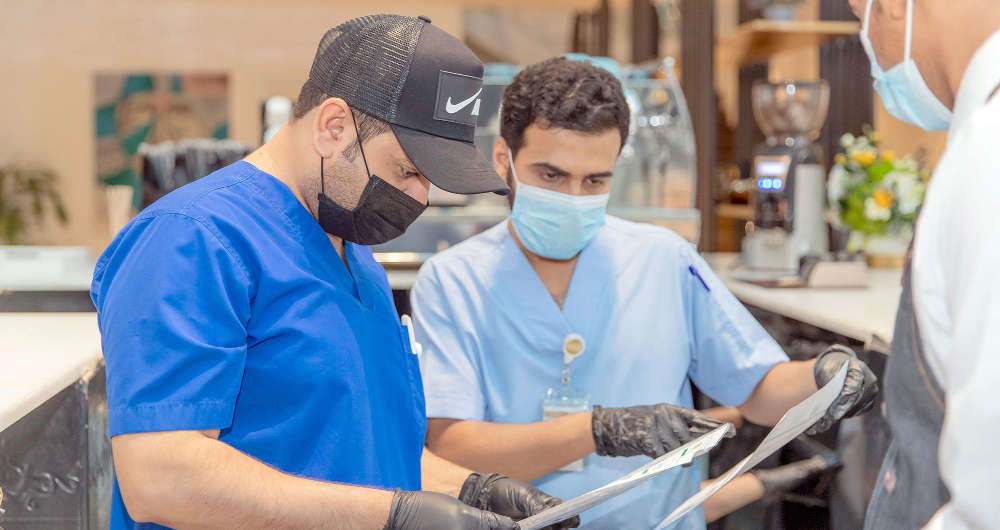
from Saudi Arabia https://ift.tt/2Vyczq0
Saudi king, crown prince congratulate governor general of Canada on national day
RIYADH: Saudi Arabia’s King Salman and Crown Prince Mohammed bin Salman sent a cable of congratulations to the Governor General of Canada, Julie Payette, for Canada Day.
They wished Payette good health and happiness and the government and people of Canada steady progress and prosperity.
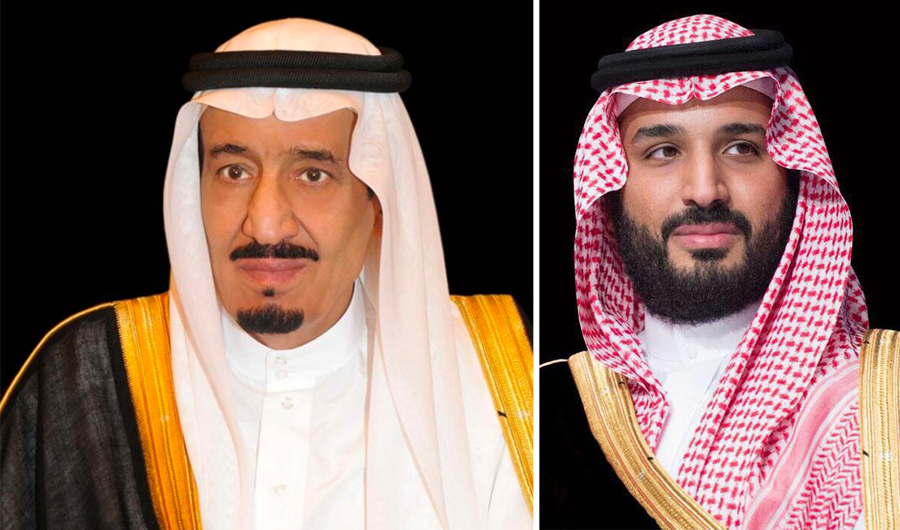
from Saudi Arabia https://ift.tt/3iizOxV
Relieved Saudis welcome the ‘new normal’
JEDDAH: Residents across the Kingdom are making the most of their newfound freedom 10 days after the lifting of coronavirus lockdown restrictions.
As cities come alive again with traffic returning and shops opening, it is business as usual for almost everyone.
Social life and commercial activity in towns and cities fell to a minimum during the two-month lockdown, but with the the end of the curfew people are seizing the chance to meet up with friends and family members they have not seen in a long time — and possibly return to their normal activities, responsibly.
However, readjusting to normality could prove challenging as Saudi health officials continue to issue warnings and insist the Kingdom “is not out of the dark just yet.”
While the Kingdom continues to ramp up COVID-19 testing and contact tracing to prevent further outbreaks, residents are quickly adapting to social changes.
According to sociologist Musaab Al-Abdullah, coping with change “is an essential characteristic in humans.”
“Ever since we were created, it is the basis of progress and keeping pace with time,” he told Arab News.
“People can get used to and adapt to anything, and they are prepared to adapt to the changes that surround them, but the speed of acceptance varies from person to person due to the nature of the individual and their ideas. Often, change comes gradually, so it is more easily accepted by individuals,” he said.
Al-Abdullah said that in recent weeks it has become clear that people must accept a “new normal.”
Many probably view the “new normal” as an exciting challenge, he added.
“Life as we know it has changed. People are afraid and are isolating themselves. They now see that life before the lockdown was blissful and not as boring as we thought. People are now waiting impatiently for the virus to be eradicated so that they can return to their normal life with a new and appreciative outlook.”
The lockdown helped people understand what is important to them because many options and places to visit were limited.
“The concept of consumption changed and we were able to live without wearing ourselves out collecting so-called luxuries. It showed that family and safety always come first,” he said.
Al-Abdullah said humans are social creatures, and being isolated from others is not normal for them.
HIGHLIGHTS
• Social life and commercial activity in towns and cities fell to a minimum during the two-month lockdown.
• With the end of the curfew people are seizing the chance to meet up with friends and family members they have not seen in a long time — and possibly return to their normal activities.
• Readjusting to normality could prove challenging as Saudi health officials continue to issue warnings and insist the Kingdom ‘is not out of the dark just yet.’
“When a person is isolated from society, depression will begin to dominate and affect their life, and life in their eyes loses its value. When you see a friend in light of this crisis, it will be a great pleasure just to see them in good health, but you will feel anxious because of the restrictions imposed on everyone.”
Lujain Al-Jehani, 27, took the opportunity to meet friends, but made sure she followed the rules.
“It was a small gathering, about four people, and we were all wearing masks and kept our distance from each other; we didn’t shake hands or hug each other. We also used plastic or paper cups and dishes,” she told Arab News.
“I think it is acceptable to meet with family and friends while taking precautions and treating yourself and others around you like you are infected to avoid catching the virus,” said Al-Jehani. “It might sound like an exaggeration, but it’s better to be safe than sorry.”
The “new normal” could also pose a challenge from a mental health perspective.
Lujain Sharawani, 27, prefers to stay at home most of the time and go out only when necessary.
“As a family, we are doing our best by staying home and not meeting with other people outdoors,” she told Arab News.
“I took the opportunity to meet with a few of my closest friends by inviting them over to my house, and we stayed in a big room to keep a safe distance between us while taking the necessary precautions such as wearing a mask and not making any physical contact,” she said.
Saudi infectious diseases specialist Abdulaziz Al-Kinani said that the Health Ministry has placed its trust in people to follow precautions.
“The ministry allowed us to return to our normal life but with new adopted behaviors, such as social distancing,” he told Arab News.
“These behaviors will help to avoid the spread of diseases, whether they are highly infectious or not, with the simplest example being the flu. To adopt this behavior — keeping distance — is healthy. We can go out and enjoy ourselves, but we must keep the precautionary measures in mind.”
However, Al-Kinani warned against being obsessively cautious, adding: “Calmly wash your hands and use disinfectants if you have touched surfaces in public places, and avoid crowds.”
Though many many still feel anxious 10 days after the lifting of the lockdown, experts say that this is an ideal time to reassess priorities and adopt a positive mindset about the future.
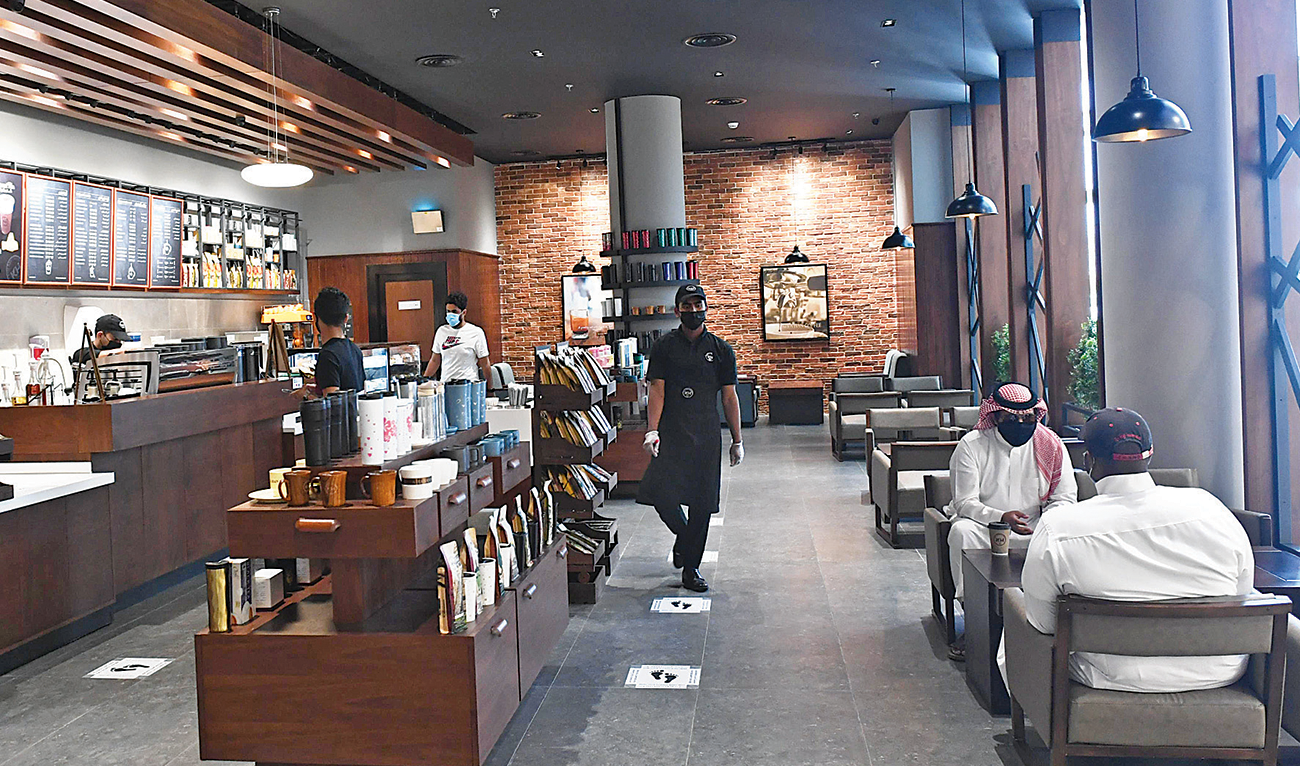
from Saudi Arabia https://ift.tt/2BY90SM
Saudi ministry launches National Cultural Awards
RIYADH: New Saudi cultural awards will celebrate artistic achievements in the Kingdom, the Saudi Ministry of Culture said on Tuesday.
The National Cultural Awards are part of the ministry’s Quality of Life program and will feature 14 categories.
The awards will be given annually to individuals or institutions who have made significant contributions to the preservation or enhancement of the Saudi cultural scene.
In a statement on the award’s website, Minister of Culture Prince Badr bin Abdullah bin Farhan said the awards will encourage individuals and organizations to continue efforts to further the Kingdom’s cultural agenda.
“The National Cultural Awards celebrate the cultural achievements and artistic talent of individuals and groups across several cultural sectors, in addition to encouraging cultural activity within the 16 cultural sectors of the Ministry of Culture. The initiative supports the realization of Vision 2030 through the Quality of Life program by advocating culture as a lifestyle and supporting the status of the Kingdom as a hub of cultural activity,” he said.
The awards are divided into four tracks: The Pioneer Award, the Youth Culture Award, and the Cultural Institutions Award. The fourth track includes 11 awards: The Film and Visual Show award, the Fashion Award, the Music Award, the National Heritage Award, the Literature Award, the Theater and Performing Award, the Visual Arts Award, the Architecture and Design Award, the Culinary Award, the Publishing Award and the Translation Award.
Nominations are open to Saudis over the age of 21 and local Saudi cultural institutions, for work that has had a significant contribution over the past two to five years, depending on the award category. Interested applicants can apply at culturalawards.moc.gov.sa until Sept. 30.
The announcement has sparked interest among a number of Saudi artists, many of whom feel that their efforts are finally being recognized.
Saudi designer and musician Labeed Assidmi said the announcement could not have come at a better time, as many creatives are struggling to sustain themselves with work, but also remain motivated.
“It’s a burst of life to give hope in these dark times. A lot of creatives are experiencing major depression with what’s happening. This shows them that the ministry — and by way of them, the government — still cares about them and supports them,” he said.
Nouf Al-Hammadi, an aspiring Saudi fashion designer, told Arab News she felt validated by the inclusion of a fashion category, especially after all the time she spent defending her chosen career path from naysayers and doubters.
“I studied finance at university and spent six months in the field before I finally stopped listening to people who told me I couldn’t succeed and decided to become a fashion designer. I’m working on my first collection now and I can’t wait to share it with the world, knowing that my country supports my efforts,” she said.
She added: “Every time I see the ministry mentioning fashion or including it as an art category, I feel like all the sacrifices I made were worth it because it’s not just a hobby anymore, it’s a recognized form of art and career path.”
The winners will be announced in 2021.

from Saudi Arabia https://ift.tt/38eOpWy
Diriyah Gate Development Authority starts work on major heritage project
JEDDAH: Diriyah Gate Development Authority (DGDA) started the first phase of the biggest cultural project in the world at cost of SR75 billion ($20 billion), marking the start of a bold new era of construction for the city of Diriyah in Riyadh province.
Seven square kilometers of the historic city of Diriyah, just 15 minutes northwest of Riyadh, are to be transformed into one of the world’s foremost lifestyle destinations for culture, hospitality, retail and education.
Officials hope the destination attracts local and international visitors alike through its world-class entertainment and events.
In line with design, development and preservation standards, DGDA will create an environment that enhances Diriyah’s national and international relevance, including the preservation of the At-Turaif UNESCO World Heritage Site, which sits at the heart of the development.
Careful restoration of historic Diriyah has been undertaken to create a living heritage site, which echoes the remarkable past of the first capital of Saudi Arabia.
Diriyah Gate draws on the influence of 300-year-old Najdi architecture, albeit newly adapted for 21st-century living. It will comprise the Kingdom’s most walkable collection of heritage and culture offerings including more than 20 Saudi cultural attractions.
DGDA’s giga-project will feature an array of world-class cultural, entertainment, retail, hospitality, educational, office and residential areas, including more than 20 hotels, a diverse collection of museums, a bustling retail heart and more than 100 places to dine.
The project includes a series of outdoor plazas as well as a 3-kilometer escarpment walk offering views across the historic Wadi Hanifah.
The premier cultural and lifestyle destination will be home to a population of 100,000 and hopes to attract 25 million visitors annually — a place to gather, explore, shop, dine, live and work.
One of the first areas to benefit from the transformation is the Bujairi district. Over the coming year, Bujairi will experience a major upgrade that will significantly beautify the area, improve infrastructure and enhance the quality of life for the community.
The new streetscape will honor the history of Diriyah with careful landscaping, as well as bike tracks, horse bridle paths and shaded pedestrian walkways.
Bujairi will soon be home to Riyadh’s new premium dining hub, enhanced by uninterrupted views of At-Turaif; Diriyah Art Oasis, one of Saudi Arabia’s first arts centers dedicated to contemporary art; and the Najdi-style 142-key Samhan Heritage Hotel.
A key aspect of the development is the restoration of two square kilometers of the Wadi Hanifah, forming part of DGDA’s masterplan.
This will include the restoration of the historic palm groves and farms, combined with new walking trails and picnic areas for the community to enjoy.
In addition to Bujairi and Wadi Hanifah, the initial phase includes the start of work on one of the world’s most complex underground infrastructure projects.
This will involve the movement of approximately nine million cubic meters of soil, equivalent to 3,600 50-meter long Olympic swimming pools. Excavating 15 meters below ground level, the project will result in three kilometers of tunnels and 10,500 car parking spaces, using 1.2 million cubic meters of concrete.
The first stage of the work will cover 1,320,000 square meters, approximately the size of 185 football pitches.
“We are overjoyed to take the first steps in our construction, moving from vision to reality. Diriyah Gate will become a global cultural and lifestyle hub; a place of great celebration and joy, and a powerhouse of Saudi culture and commerce,” said Jerry Inzerillo, DGDA’s CEO.
“Our masterplan’s point of difference is an incredibly powerful combination of being home to the Jewel of the Kingdom, At-Turaif, coupled with being steeped in over 300 years of royal history and developing world-class, contemporary assets — all reflecting the great future vision of our beloved leaders.
“With a huge variety of educational institutions planned, including academies, cultural institutes, museums and universities, we will be developing a place of great learning and intellectual curiosity. Filled with wonder and discovery, Diriyah Gate will leave our visitors relaxed, inspired and culturally connected, and it is destined to become one of the world’s greatest gathering places,” said Inzerillo.
Jonathan Timms, DGDA’s chief design and development officer, said: “On completion, the development will embody a new way of living for Diriyah’s residents and the greater Riyadh community — comprising a sophisticated intersection of authentic Najdi-style living coupled with world-class amenities, all within the convenience of a mixed-use urban community. Overall, it will be an enhanced, pedestrian-friendly, walkable city, deeply rooted in the heritage and cultural equity of the Kingdom.”
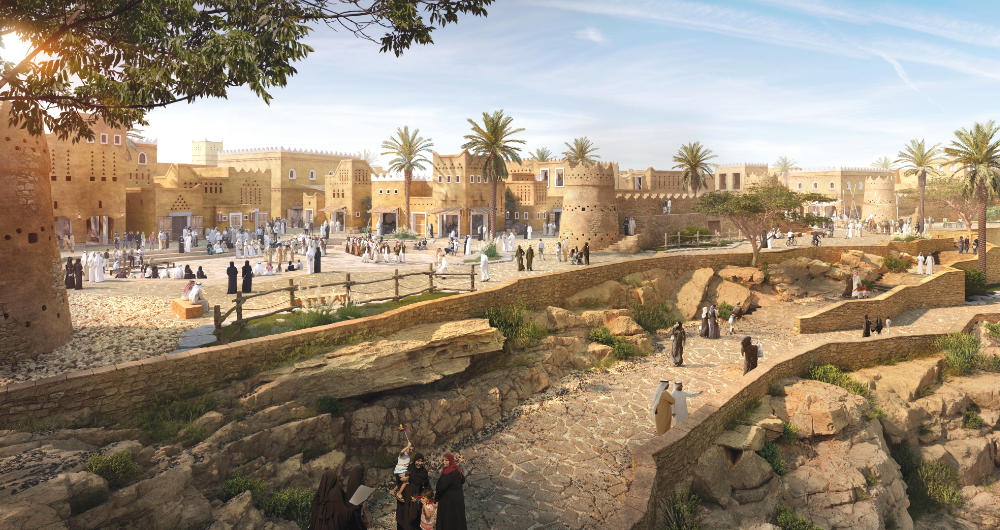
from Saudi Arabia https://ift.tt/2VPxdSL
Nabeel A. Al-Jama’, senior vice president for HR and corporate services at Saudi Aramco
Nabeel A. Al-Jama’ has been appointed as senior vice president for human resources and corporate services at Saudi Aramco.
He will take up the role on July 1 following the creation of the new services sector by the oil giant.
Al-Jama’ started his career with Aramco 30 years ago in its home ownership division and enrolled on the company’s college program. In 1985, he gained a bachelor’s degree in community and regional planning from King Fahd University of Petroleum and Minerals, in Dhahran.
He then returned to his division, working in various administrative positions until 1992, when he was promoted to supervisor of the home ownership unit.
In 1998, he obtained a master’s degree in community and regional planning also from King Fahd University of Petroleum and Minerals, and in the same year was appointed as the director of Aramco Built Government Schools.
In 2002, he served as the manager of central community services while fulfilling several roles as acting general manager of medical operations, acting personnel director, and acting executive director for community buildings and office services.
His long career with the company continued when he became general manager of training and career development in 2006. By 2009, he was already the executive director of community services, and in 2012 was promoted to executive director of industrial services.
He also served as vice president for pipelines, distribution, and terminals, led the office of the Minister of Energy, Industry and Mineral Resources, was vice president of human resources, and held the same title for corporate affairs.
Al-Jama’ gained further skills by taking part in various leadership programs and he is a member of several boards including the Johns Hopkins Aramco Healthcare Co.
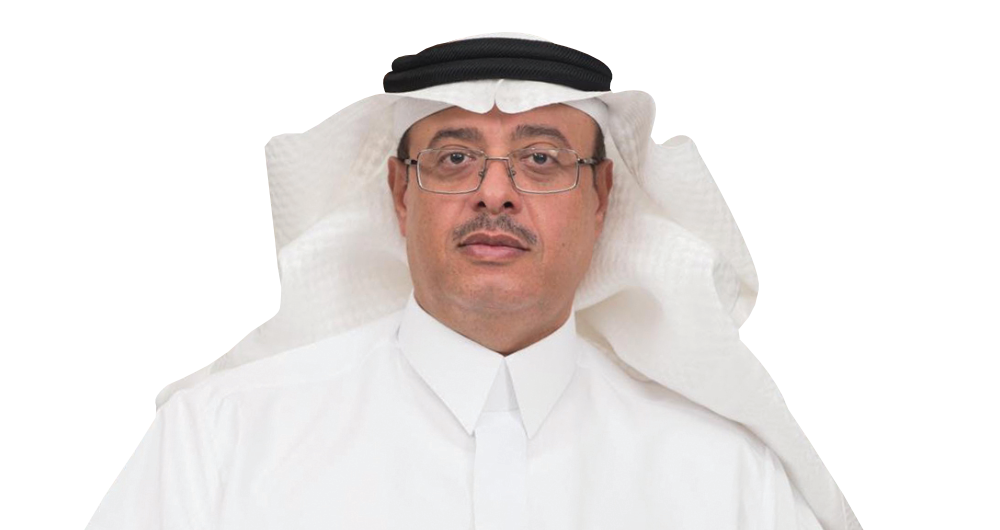
from Saudi Arabia https://ift.tt/2BpP3oc
Saudi Cabinet calls for talks over Ethiopian dam
JEDDAH: The Saudi Cabinet on Tuesday stressed the need to resume negotiations relating to the Grand Ethiopian Renaissance Dam, amid concerns that it will affect water supplies to Egypt and Sudan.
They reviewed a discussion last week by Arab foreign ministers and the formation of a committee to follow up on concerns and coordinate with the UN Security Council. Ethiopia is threatening to start filling a reservoir on the Blue Nile that many fear will cut vital water supplies downstream.
Ministers said that the water security of Egypt and Sudan is “inseparable” from Arab national security. The Cabinet rejected any activities that affect the rights of any parties reliant on Nile waters, and said negotiations must resume to reach a fair agreement.
During the virtual meeting, which was chaired by King Salman, ministers thanked the Islamic world, and the wider international community, for the support the Kingdom has received for its decision to severely limit the number of pilgrims performing Hajj this year, as a precautionary measure to limit the spread of the coronavirus.
In addition, said acting Minister of Media Majid Al-Qasabi, ministers expressed their appreciation for the work being done by the Sudanese transitional government, and the economic reforms it has implemented, to address the challenges facing the country.
“The donors’ support to Sudan is an important investment to achieve its security and stability and to preserve the integrity of the region and the international community, enabling it to overcome the difficult economic conditions it is going through, so as to take its rightful place among Arab and international countries,” the Cabinet said.
Ministers reviewed other events and developments in the region and world. They reiterated the Kingdom’s commitment to the principles of the Palestinian cause, including an end to the occupation, the establishment of an independent Palestinian state with East Jerusalem as its capital, and the right of return for Palestinian refugees, while denouncing Israel’s illegal policies and practices
They also reviewed the efforts being made by the Kingdom to restore control of Yemen to its people, calling on the UN Security Council to accept its responsibilities and work to halt the targeting of Saudi civilians by Houthi militias.
Ministers approved a number of decisions, including a memorandum of understanding between the Saudi Space Authority and the Greek Ministry of Digital Governance for cooperation in the field of satellites and their applications.
They also endorsed the national agriculture strategy and its executive summary, as well as the transfer of a number of specialties from the Ministry of Municipal and Rural Affairs to the Ministry of Environment, Water and Agriculture.
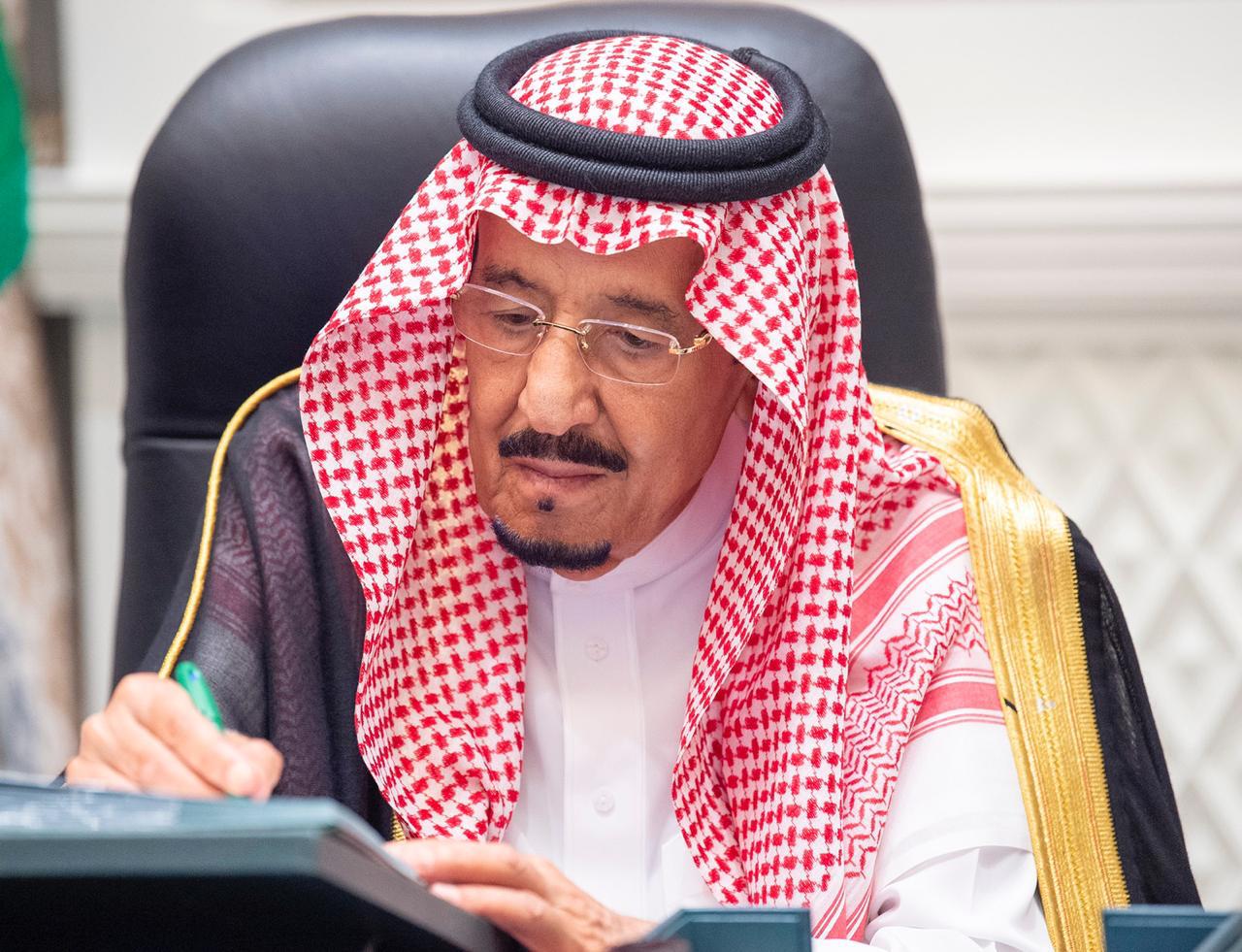
from Saudi Arabia https://ift.tt/2AnRZkQ
Saudi Arabia: UN Aramco attacks report ‘leaves no doubt’ over Iran’s hostile intentions
LONDON: Saudi Arabia’s Ministry of Foreign Affairs welcomed Tuesday a UN report confirming Iranian involvement in attacks on Saudi Aramco facilities in September 2019.
A foreign ministry statement said the findings of UN Secretary General Antonio Guterres’ report “leaves no doubt for the international community about Iran’s hostile intentions towards the Kingdom in particular, the Arab region and the wider world in general.”
Guterres presented his report to a virtual gathering of the Security Council on Tuesday, implicating the Iranian regime in attacks last year on oil installations in Abqaiq and Khurais in the east of the Kingdom.
The ministry’s statement also echoed calls made during the virtual meeting by US Secretary of State Mike Pompeo for an extension of an arms embargo on Iran.
--------
READ MORE: Pompeo to UN: Ending Iran arms ban would mean ‘sword of Damocles’ over region
Arab Coalition seizes 2 Iranian weapon shipments heading to Houthis in Yemen
--------
It said the report’s findings also highlighted Iran’s continuous aggressive approach to destabilizing the region’s security, and the regime’s logistical, military and financial support for armed terrorist militias in Yemen, Iraq, Syria and Lebanon — something it did with “no regard for international laws and treaties or the principles of good-neighborliness.”
Foreign minister Prince Faisal bin Farhan said the security council meeting was a “reminder for the international community to take a firm stance against the Iranian regime’s aggression and terror.”
The details and facts laid out in the UN report reinforce our support for a continued ban on arming the Iranian regime, and confronting its developing nuclear and ballistic programs
— فيصل بن فرحان (@FaisalbinFarhan) June 30, 2020
The details and facts laid out in the UN report “reinforce our support for a continued ban on arming the Iranian regime, and confronting its developing nuclear and ballistic programs,” he said on Twitter.
The ministry added that the Kingdom would not allow transgression of its borders and threats to its national security — or threats to the safety of international waterways — posed by the “hostile behavior of Iran.”
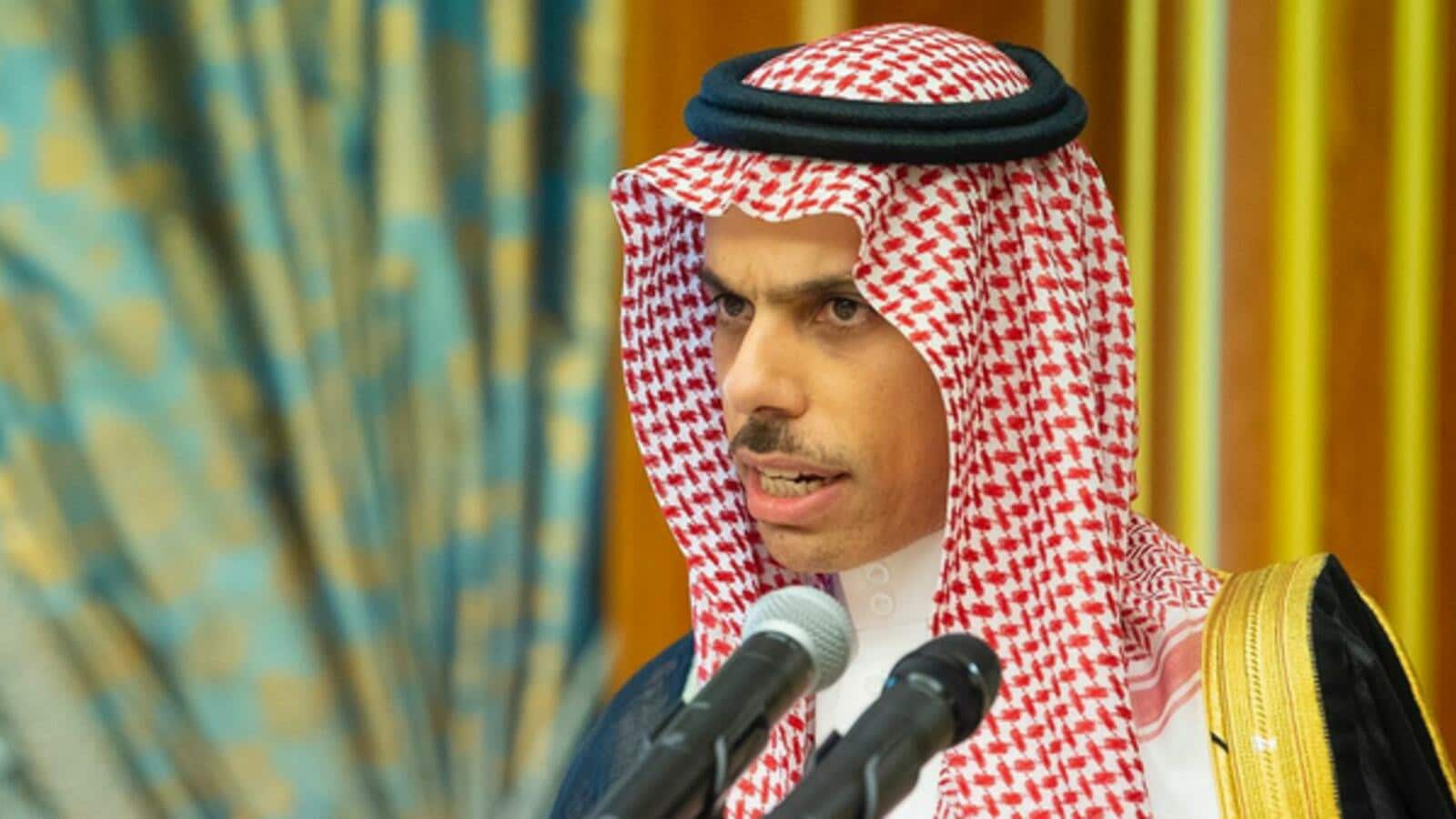
from Saudi Arabia https://ift.tt/2NJhAaT
Twitter User Cooks 4,000-Year-Old Recipes Amid Lockdown, See Results
from NDTV News - Special https://ift.tt/3eHetvU
Security Law "Most Important Development" For Hong Kong: Leader
from NDTV News - World-news https://ift.tt/2ZmB9eE
US Warns China Of New Countermeasures After "Sad Day" For Hong Kong
from NDTV News - World-news https://ift.tt/2NKnmZK
Knew This Will Happen: Officials As Hurriyat Leader Quits After 27 Years
from NDTV News - Special https://ift.tt/2NKaoes
Samsung Galaxy S20+, Galaxy Buds+ BTS Editions Launched in India
from NDTV News - Special https://ift.tt/2BpJEgL
US Approves 4 COVID-19 Vaccine Candidates For Clinical Trials
from NDTV News - World-news https://ift.tt/3dURz3b
Trump "More And More Angry At China" Over Coronavirus Spread
from NDTV News - World-news https://ift.tt/31yeA9d
Trump "More And More Angry At China" Over Coronavirus Spread
from NDTV News - Special https://ift.tt/31yeA9d
COVID-19 Pandemic "Is Not Even Close To Being Over", Says WHO Chief
from NDTV News - Special https://ift.tt/2YGHWk7
US "Golden State Killer", An Ex-Cop, Pleads Guilty To 13 Murders
from NDTV News - Special https://ift.tt/3gbcSPe
"Shocked": Bengal Says Nirmala Sitharaman's Claims "Unfounded"
from NDTV News - Special https://ift.tt/2Vwsxkh
Two Dead, Four Hospitalised After Gas Leak At Visakhapatnam Pharma Unit
from NDTV News - India-news https://ift.tt/2YGZah8
"Shocked": Bengal Says Nirmala Sitharaman's Claims "Unfounded"
from NDTV News - India-news https://ift.tt/2Vwsxkh
Saudi king, crown prince congratulate Malawi president on election victory
RIYADH: King Salman and Crown Prince Mohammed bin Salman sent a cable to congratulate President Lazarus Chakwera of Malawi on his election victory.
Chakwera was sworn in on Sunday, hours after unseating former leader Peter Mutharika in a re-run election. He won 58.57% of the vote.
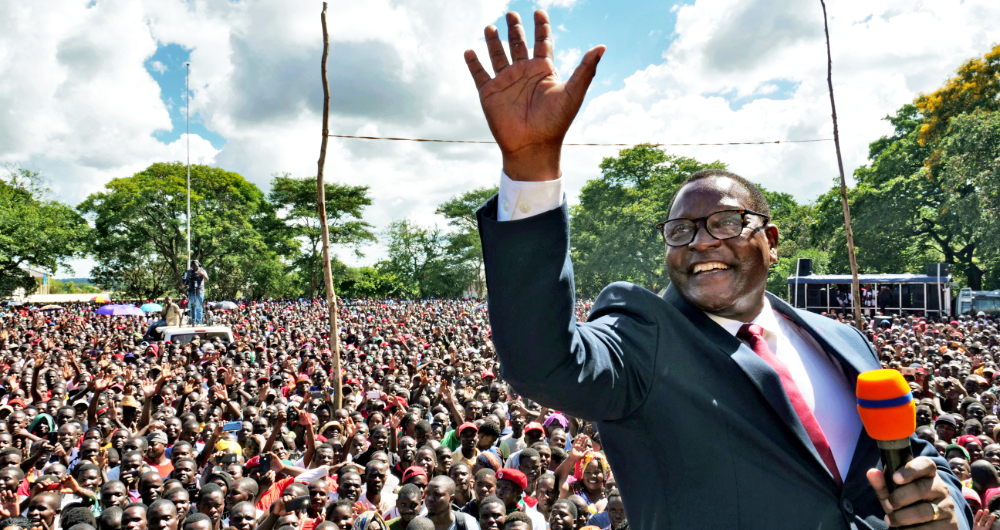
from Saudi Arabia https://ift.tt/31oK8hY
Ethiopia’s grand mufti commends Hajj decision
RIYADH: Sheikh Haji Omar Idris, the grand mufti of Ethiopia and the president of the country’s Islamic Affairs Supreme Council, has praised the Kingdom’s decision to hold Hajj this year with pilgrims from a limited number of nationalities who are already in the country.
He said the decision embodied the Kingdom’s keenness to hold the Hajj in a way that met the safety requirements of coronavirus prevention.
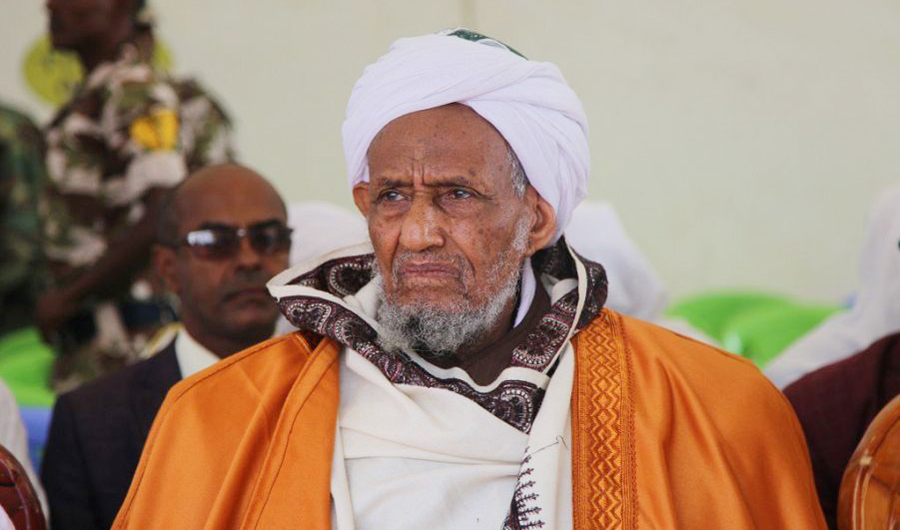
from Saudi Arabia https://ift.tt/38bD1uF
Doctors promote Saudi Arabia’s image abroad
RIYADH: The Salam Project for Cultural Communication held a virtual seminar on Saturday titled “Saudi Doctors Abroad and Promoting the Image of the Kingdom.”
During the seminar, Saudi doctors working abroad as part of the medical fellowship program talked about their personal experiences with patients in a number of countries. Participants talked about the positive feedback they received after they stayed to fight the COVID-19.
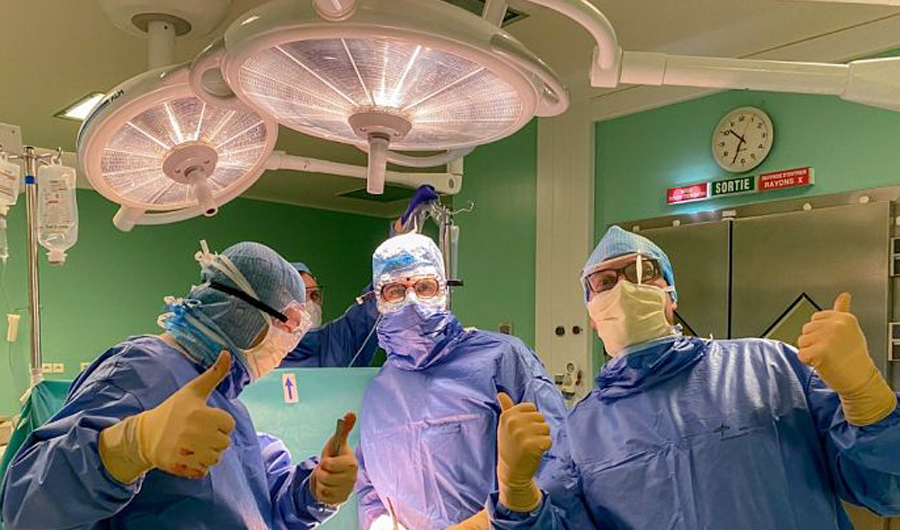
from Saudi Arabia https://ift.tt/2CTVSPi
Saudi Shoura Council approves economic cities and special zones authority
The Saudi Shoura Council has given the go-ahead for a project to reorganize the system of cooperative societies in the Kingdom.
During a virtual session headed by the council’s president, Dr. Abdullah Al-Asheikh, delegates also listened to a presentation by the culture, information, tourism, and antiques committee chairman, Dr. Mohammed Al-Hizan, on the annual report of the authority responsible for radio and television.
Members then voted to accept the committee’s recommendation to progress with the process of privatizing the authority.
Dr. Yahya Al-Samaan said the council also gave the green light for the Economic Cities and Special Zones Authority to develop a system of regulatory and financial legislation while putting forward more incentives and initiatives to enhance the competitiveness of cities and special economic areas to attract quality industries and global investors.
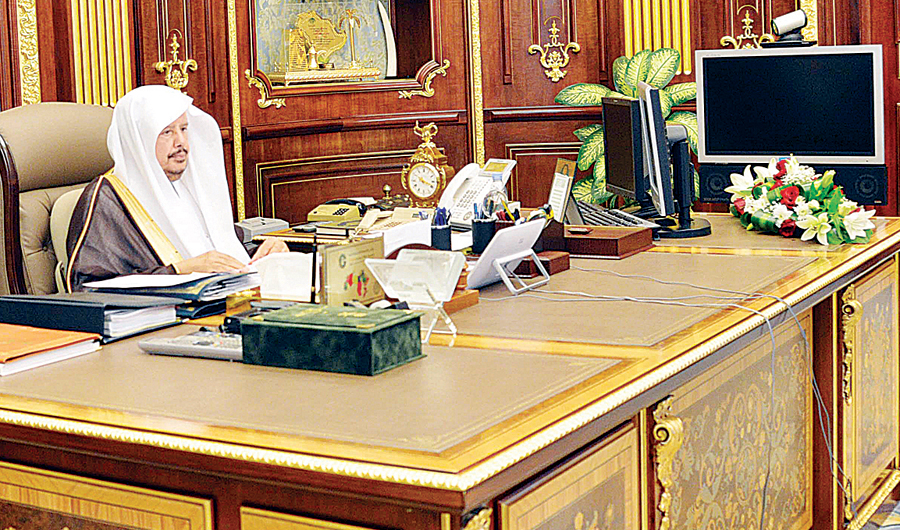
from Saudi Arabia https://ift.tt/2BTF8qF
Dr. Nabeel Koshak, CEO and board member of the Saudi Venture Capital Co.
Dr. Nabeel Koshak is the CEO and board member of the Saudi Venture Capital Co. (SVC).
SVC is a government venture capital firm established in 2018. It aims to develop the venture capital ecosystem in Saudi Arabia to support startups by co-investing along with angel investors, venture capitalists, and sophisticated investors in startups as well as investing in funds.
It recently signed an investment deal with a venture capital fund licensed by the Capital Market Authority and founded by Osool & Bakheet Investment Co. (OBIC) and iMENA Group. The signing ceremony took place virtually between Koshak and OBIC’s CEO Mazin Al-Dawood, the Saudi Press Agency reported.
Koshak is a prominent Saudi academic and entrepreneur. He was the founder and CEO of five tech startups.
He was also the founder and angel investor at Athaal (Angel Investors Group), which invests in early-stage startups across the MENA region.
He is chairman of Saudi Arabia’s Global Entrepreneurship Network and a member of the investment committees at King Abdullah University of Science and Technology’s Innovation Fund.
He was the founding dean of the Prince Mohammad bin Salman College (MBSC) between 2017 and 2019. It is Saudi Arabia’s first institute of higher learning specializing in leadership and entrepreneurial development.
Established in 2016, the MBSC is located at the King Abdullah Economic City near Jeddah. Koshak is a member of MBSC’s board of trustees.
Koshak is the former president of Al-Baha University and the former vice president for business and innovation at Umm Al-Qura University (UQU).
He was an associate professor conducting research at the Hajj and Umrah Research Institute while teaching courses at UQU’s College of Engineering and Architecture.
Koshak is the former director of the King Abdulaziz City for Science and Technology GIS Technology Innovation Center at UQU, and the former chairman of the board of directors at the Transportation and Crowd Management Innovation Center.
He is the co-founder and former general supervisor of UQU’s Innovation and Entrepreneurship Institute, and the co-founder and vice-chairman of the board of directors of Wadi Makkah Co., a platform for launching startup companies in various sectors in the Kingdom.
Koshak received his bachelor’s degree in architecture from UQU in Makkah in 1993, and his master’s degree from Colorado University in 1997. He received a doctorate in computational design from Carnegie Mellon University in 2002. He later joined Harvard’s executive education programs.
He is a member of various boards including the Middle East Venture Capital Association, the King Abdulaziz and His Companions Foundation for Giftedness and Creativity and the executive committee of the King Faisal International Prize.
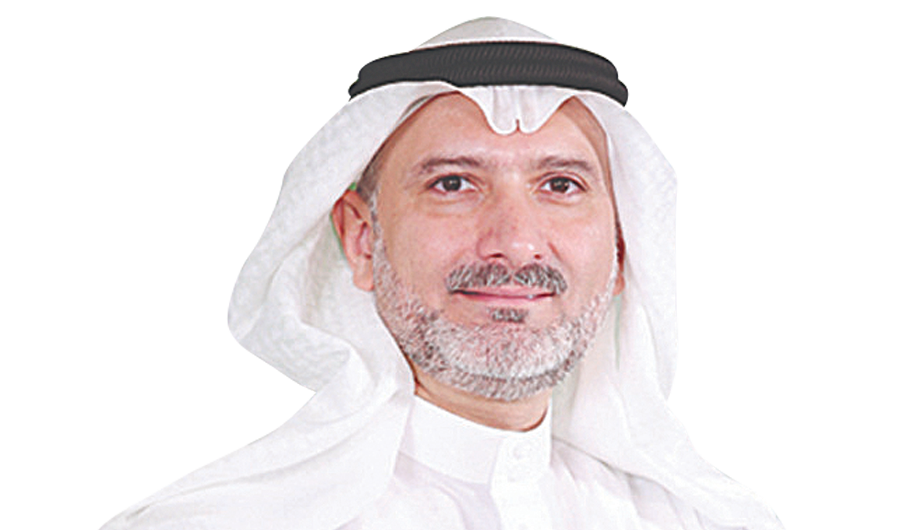
from Saudi Arabia https://ift.tt/2CQpGw5
Health Ministry issues guide to tourists in Saudi Arabia
JEDDAH: Saudi Arabia’s Ministry of Health has recommended measures to tourists and travelers to prevent them from contracting or spreading coronavirus.
The measures are to be taken while traveling, in residence, in open recreational areas such as beaches and parks, in closed entertainment places, while out shopping, and in restaurants and cinemas. There are also measures to be taken while in children’s company.
The ministry published an infographic on its Twitter account and its educational platform, Live Well, telling people to respect social distancing and call the free toll number 937 when coming into contact with people who might be infected and showing symptoms such as coughing, fever or shortness of breath.
It called on everyone to wear face masks in public, wash their hands or sanitize them for 20 seconds.
It also warned against sharing utensils with others, shaking hands, hugs, or touching the eyes or nose. It advised people to cough or sneeze into their elbow, or cover their mouth and nose with a handkerchief and dispose of it immediately afterwards. The ministry also stressed on keeping a safe distance of no less than two meters.
Anyone with symptoms is advised to use the Mawid app for self-evaluation, visit one of the 237 clinics specialized in dealing with COVID-19 infection cases, or message the WhatsApp number 920005937 for health information and services. They can also get updates on developments related to the pandemic,
primary care centers, blood donation centers, and ways to set appointments.
FASTFACT
The ministry published an infographic on its Twitter account and its educational platform, Live Well, telling people to respect social distancing and call the free toll number 937 when coming into contact with people who might be infected and showing symptoms.
With the majority of lockdown restrictions now lifted in Saudi Arabia the Jeddah Municipality carried out inspection tours of women’s beauty salons and hairdressers to ensure the implementation of precautionary measures to fight the spread of COVID-19.
Mohammed bin Ibrahim Al-Zahrani, deputy mayor of Jeddah’s sub-municipalities, said that 185 inspection tours had been carried out since women’s salons had reopened and that 17 centers were penalized for not following the measures.
A number of closed stores have undergone the necessary procedures in preparation for reopening.
After months of lockdown and curfews across the Kingdom, Jeddah’s waterfront started receiving visitors again. Protocols and precautionary measures have been put in place to limit the spread of the virus.
Saudis and expats were happy to return to the city’s famous corniche, enjoying its services, open spaces, walkways and restaurants, amid a heavy presence of security staff to organize the traffic.
Many visitors chose to spend their time at the waterfront walking or riding their bikes. Children were able to enjoy the games and attractions that the municipality had sterilized and disinfected for their protection.
The levels of visitors’ social awareness and responsibility was reflected in their commitment to social distancing.
Restaurants along the corniche have also been abiding by preventive protocols and serving people in line with health measures to ensure everyone’s safety.
The Kingdom recorded 48 new COVID-19-related deaths on Monday, raising the total to 1,599.
There were 3,943 new cases reported in Saudi Arabia, meaning 186,436 people have now contracted the disease. There are 57,719 active cases, and 2,285 of them are in a critical condition.
According to the Ministry of Health, 433 of the newly recorded cases were in Al-Hafouf, while Riyadh reported 363, and there were 357 in Dammam.
In addition, 2,363 more patients have recovered from COVID-19, taking the total number of recoveries to 127,118.
Saudi Arabia has so far conducted 1,591,141 tests for COVID-19.
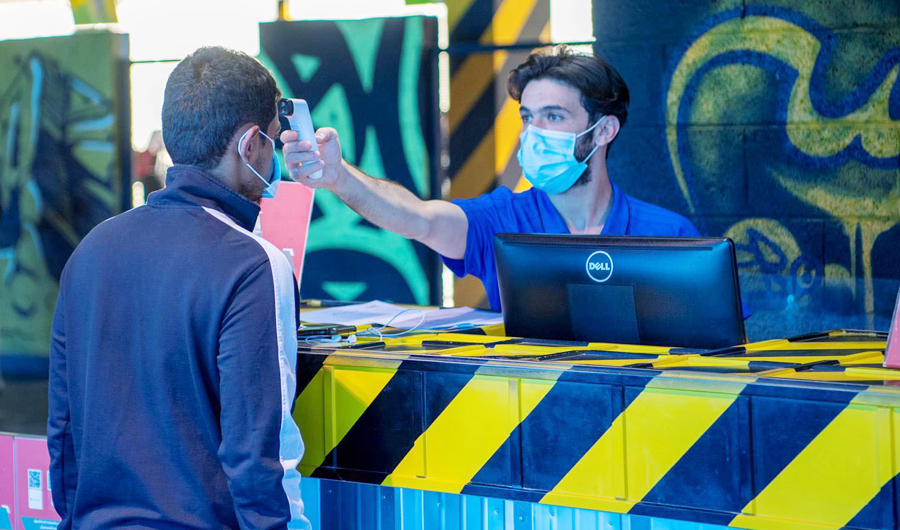
from Saudi Arabia https://ift.tt/31xAae7
Startup of the Week: First Crack’s journey from small coffee truck to independent store
First Crack is a Jeddah-based coffee brand that reinvented the startup business model by investing its capital in participating in events.
Building itself from scratch, the startup came to local prominence without taking loans or opening up its own shop. Instead, they appealed to locals through small events and co-dependent stores.
It is comprised of three founders: Hanady Uthman, who has a background in statistics, computer science and business management; Hamza Uthman, an industrial engineer; and Abdulrahman Hejji, who studied law.
Hejji has always been passionate about his cup of coffee and how it was made. He would try different coffee beans, locally and from around the world, and began to make them for friends. Hamza later suggested that he start a coffee business.
“The two sat down together and started a financial study to look into the capital needed to start the business. They came up SR1 million ($267,000) short, with renting a place, buying the necessary equipment, furniture and permits, and bringing in employees,” Hanady said.
First Crack later started at a charitable event in the first quarter of 2018 as a coffee truck project.
“We wanted to test the waters, see if the clients and market were interested. So I suggested we go with the food truck trend. Hejji’s coffee was good . . . but when you’re introducing it to clients, it’s a whole new demographic,” she said.
The trio introduced two signature drinks, Flex Latte and Cold Brew, which continue to be bestsellers at their shop today.
“Cold Brew, which is concentrated black coffee without any additives, is made by soaking coffee beans for over ten hours. Flex Latte, however, contains a mixture of condensed milk, an espresso shot and our secret ingredient,” Hanady said.
Picking coffee beans and roasters fell to Hejji and Hamza, who initially worked with international roasters but switched to local ones to support Saudi brands.
For six months, First Crack continued as an event-based business building their repertoire among coffee connoisseurs.
“It was definitely challenging. When you have your own store, you start your day and end it there and close up shop and leave. Moving our equipment around was draining, not to mention having to take out milk and coffee in case of a power outage,” she said.
But then a chance arose for the startup to launch through Makeen Space, a Saudi initiative that helps to develop local projects and provided the space needed to showcase their products.
“On the plus side, establishing a spot within Makeen helped us to cut down on losses — the area was set up, the bar was already part of the setting and the seating area was already there. We just needed to bring our equipment.
“On the other hand, our location wasn’t ideal, making it difficult for new customers to find us,” Hanady said.
The first three months were a struggle. The co-founder admitted they were not making any revenue, and the only regular customers they had were family members and friends.
“If someone were to ask me what marketing tool it was that kicked us off, I wouldn’t say social media or some agency. It was good old-fashioned word-of-mouth,” Hanady said.
Within its first year of operation with Makeen, First Crack expanded and branched out within a burger joint in Jeddah, Gilt, which proved challenging.
“We always aspire to think outside of the box, which is why (we) didn’t go for a stand-alone shop right away. Luckily, it worked out. People would show up at Gilt just to get a cup of coffee from First Crack,” Hanady said.
After leaving Makeen, First Crack moved to Corniche’s Mini Square, right across from Medd Cafe, a major competitor. The branch was still not an independent store but offered the cafe’s visitors more seating options, including an outdoor area overlooking the Red Sea.
“Medd are the pioneers of specialty coffee in Jeddah — no one can argue with how they’re at the top of the coffee scene — but we also managed to stand alongside them, and continue to do well, which in a way is a testament to our strength as well,” Hanady said.
Nowadays, the coffee brand’s name has built momentum. Hanady said that this was due to their continuous participation in local events, which also provided quick income. “We recently had a booth in Winter Wonderland for Riyadh Season, and it’s really helped us to reach a bigger audience.”
Similar to their beginnings, First Crack has begun to explore clientele in other regions of the Kingdom in order to branch out.
Today, the coffee shop is working on two stand-alone stores in Jeddah and Riyadh, but these plans have been put on hold due to the pandemic.
One upside of the current crisis has been that it made First Crack explore the concept of coffee delivery.
“Our customers would always suggest it,” Hanady said, “but it seemed so unlikely before.”
“How would we get the coffee to them in time or keep it cool enough or warm enough? Because people love our brand, we wanted to give back to them so we began delivering through apps and from our store as well,” she said.
Hanady said that the delivery service will continue beyond COVID-19, as many customers would leave their store or feel discouraged if it became too crowded.
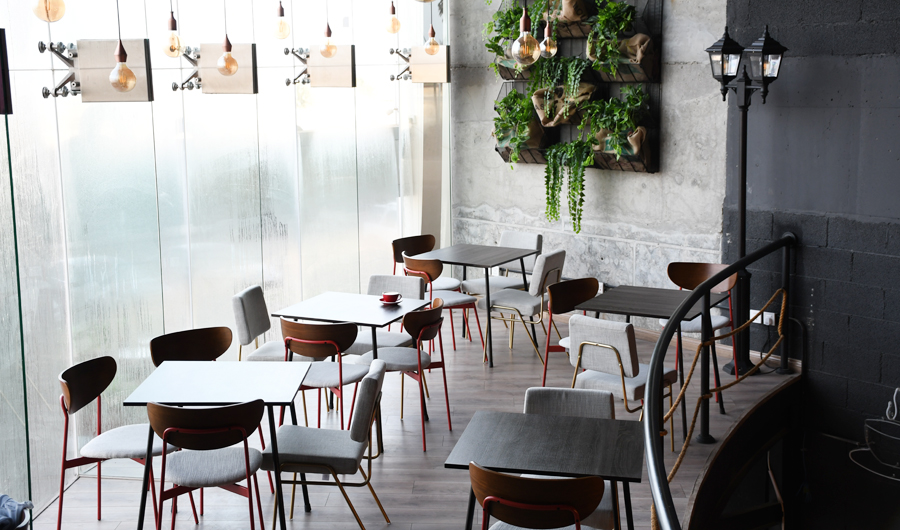
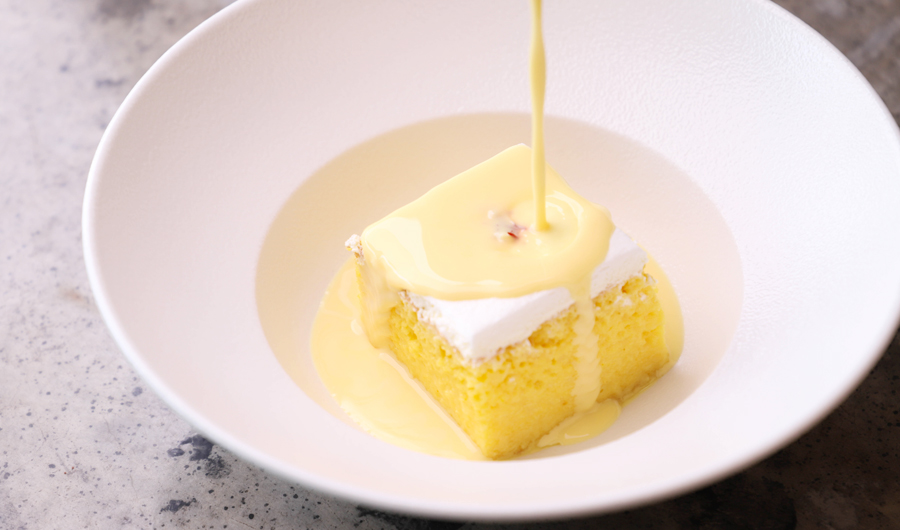
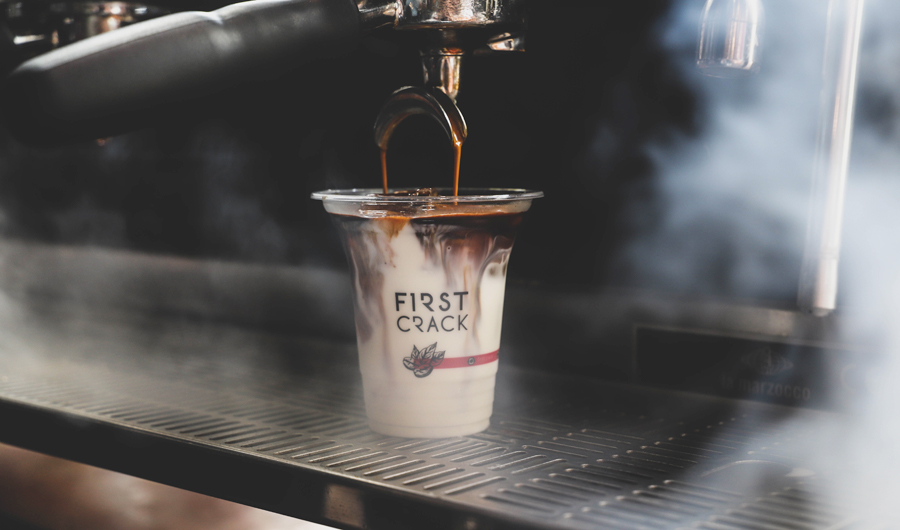
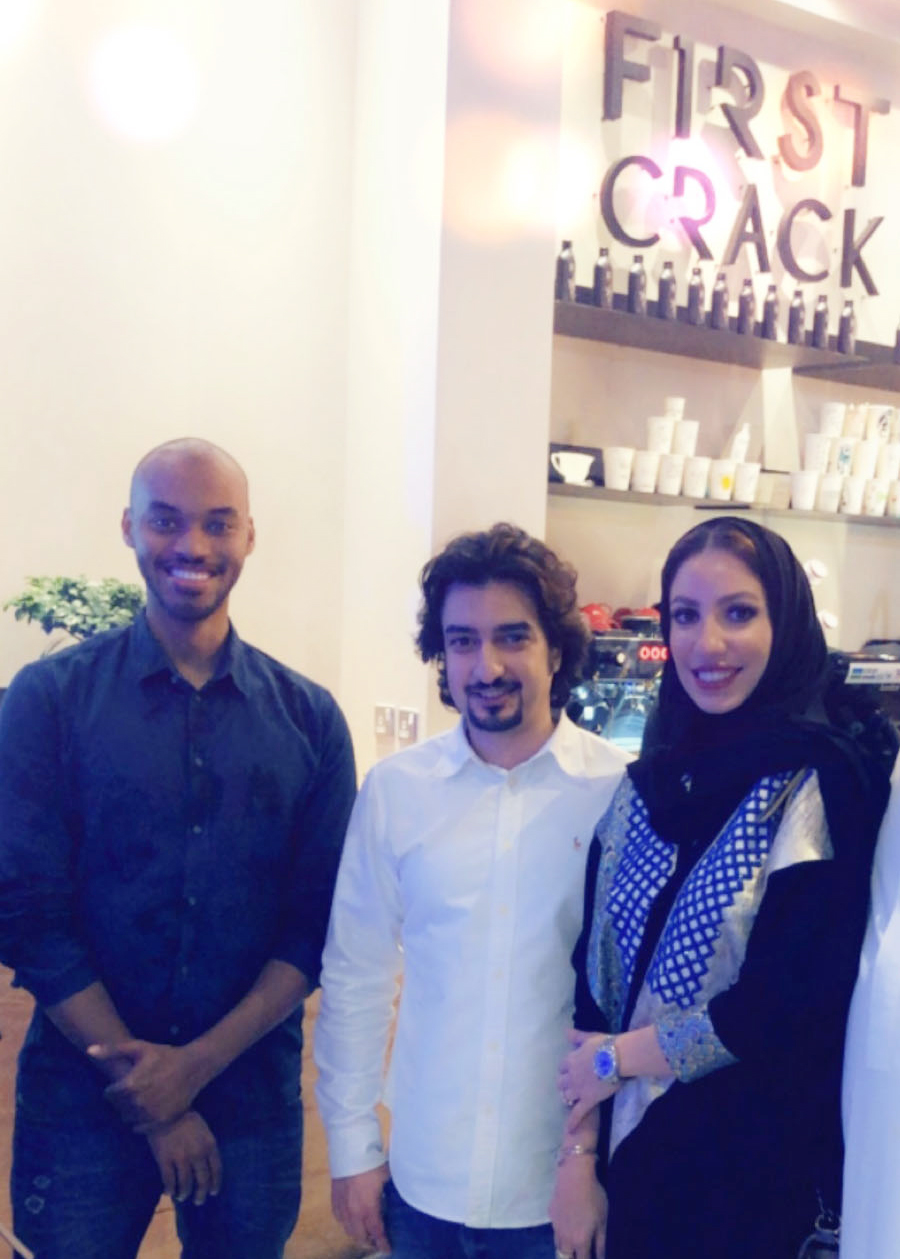
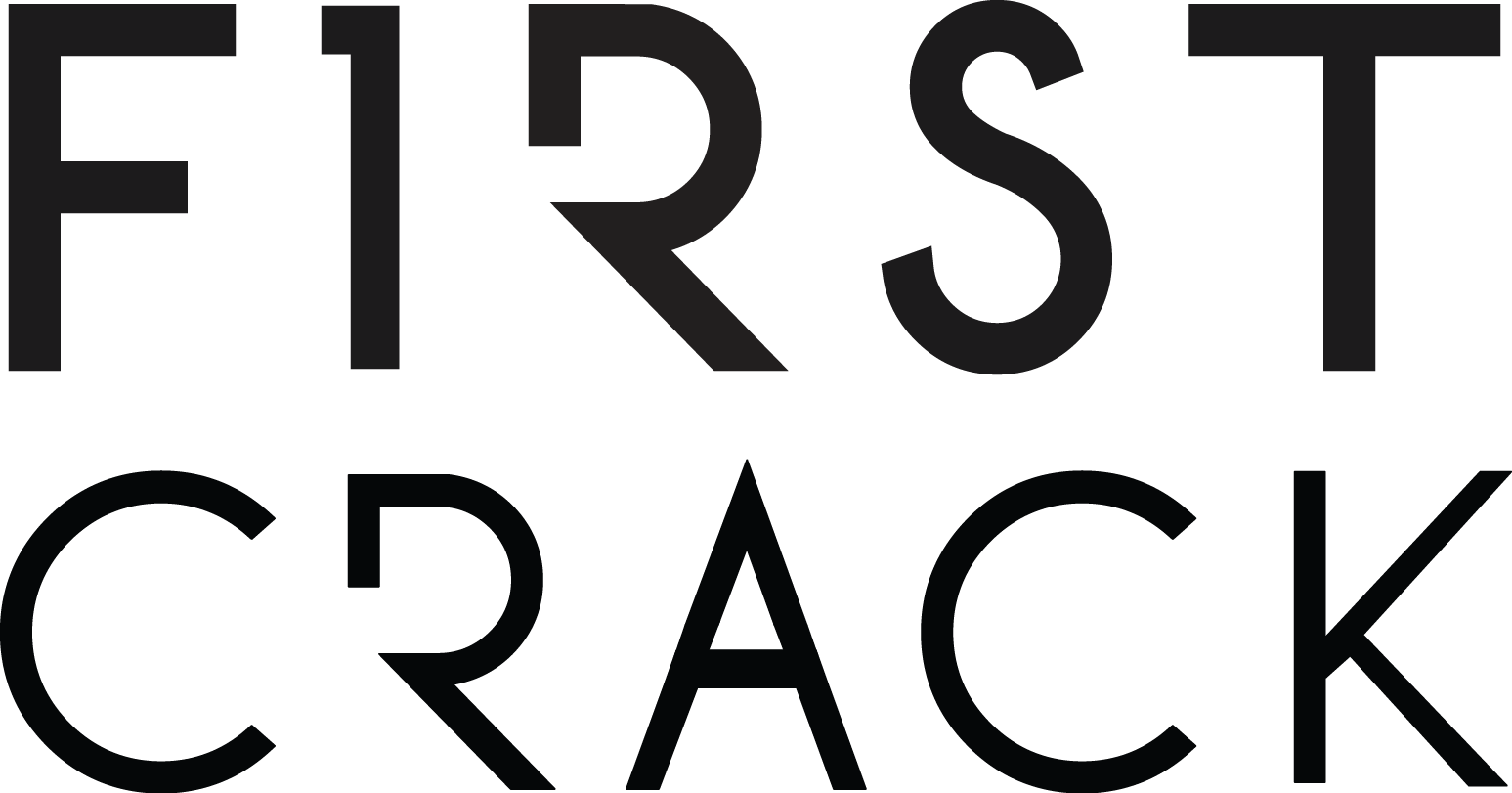
from Saudi Arabia https://ift.tt/2VxSVuh
King Abdul Aziz Foundation offers a quarter of its Arabic content online
RIYADH: The King Abdul Aziz Foundation for Research and Archives (Darah) recently launched its open access initiative after 5 years of hard work, offering a quarter of its Arabic content online for readers as part of its electronic transformation plan.
Darah’s efforts align with the principle of granting access to knowledge as a human right, guaranteed by international laws.
“The project started in 2017, which aims to achieve the objectives of the King Abdul Aziz Foundation (Darah) to make knowledge available through modern technologies and facilitate access to it for scholars, researchers and readers,” said Sultan Al-Owairdy, director of digital media management at Darah. “It is also in response to Riyadh’s call for open access to scientific information.”
This move came as a result of Darah’s participation in International Open Access Week after contributing to the activities with lectures and exhibitions.
Darah has selected 83 publications of different topics related to Saudi, Islamic and Arab histories, geography and archaeology. These books have been published at different times since Darah’s inception.
“The website is available for free; you can browse the website of the King Abdul Aziz Foundation by entering the Darah store and click on open access books, and by downloading the books provided. The browser should comply with the conditions mentioned on the website,” Al-Owairdy said.
The conditions include downloading/printing the content of the website for reading, without reproducing/copying/storing in retrieval systems or transmitting it by any means without Darah’s consent.
HIGHLIGHTS
This move came as a result of Darah’s participation in International Open Access Week after contributing to the activities with lectures and exhibitions.
Darah applies the Creative Commons Attribution–NonDerivative (CC-BY-ND) license to the works they publish. This license was developed to facilitate open access, free immediate access to and unrestricted reuse of books and research.
The intellectual property rights are still reserved for the author and publisher and what is included in the (CC-BY-ND) license.
The aim of the project was to ensure that it preserves Darah’s intellectual and material rights. To save its scientific products from being hacked, Darah calls on all scientific, educational and training institutions inside and outside Saudi Arabia to take the same step to contribute to the knowledge economy at a global level.
“King Abdul Aziz Foundation (Darah) seeks to expand its open access and establish a policy within its publishing system,” Al-Owairdy said.
He added that all publications are currently available in Arabic and will soon will be offered in English.
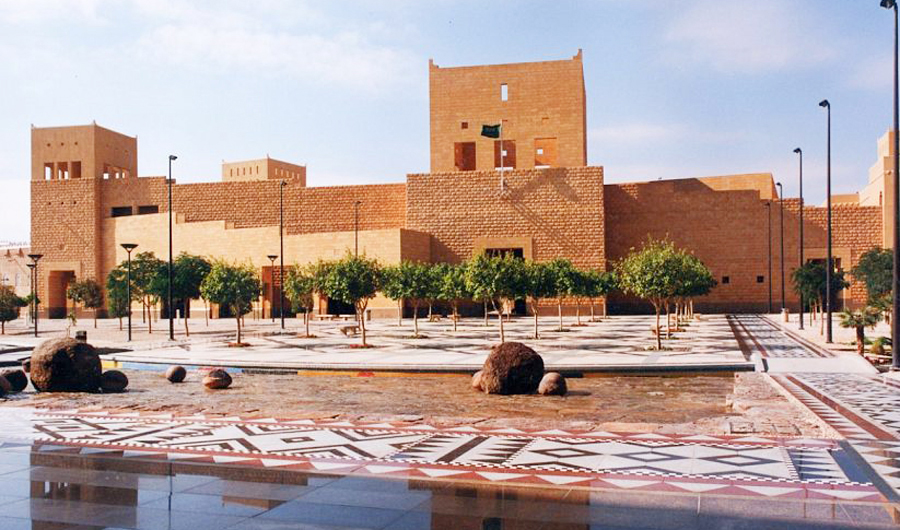
from Saudi Arabia https://ift.tt/2NC4Brw
Adventure-seeking Saudis ready to answer call of the wild
JEDDAH: Adventure-seeking Saudi citizens are being lured by the Kingdom’s great outdoors after months of being cooped up under the coronavirus disease (COVID-19) lockdown.
Following the partial easing of restrictions, which forced residents to stay at home, travel and activity groups are encouraging people to get back out and about exploring the Kingdom’s natural treasures and attractions. With international flights still suspended, Saudis and expats are being urged to rediscover the country’s beauty spots through organized activities, while still observing safety measures designed to stop the spread of the virus.
Hiking in Abha’s lush green mountains, fishing in the clear waters of Umluj in Tabuk province and exploring some of its 104 islands and stargazing from the red sand dunes of the Nafud desert are just some of the trips on offer.
One organization gearing up for a return to action is the Masarat Club. Founded in 2017 by travel enthusiasts with the aim of promoting adventure and exploration to Saudis, the group’s summer tours in the Kingdom are set to get underway in mid-July.
Bader Al-Omar, the club’s co-founder, told Arab News: The whole idea behind Masarat was based on the love of adventure. We made sure our mandate was based on exploring new untouched areas, especially in the Kingdom. Given the circumstances, we are resuming our trips mid-July, but with caution.”
He said outdoor adventuring and recreation could have major psychological benefits for people after months under lockdown.
“Masarat Club is not only about venturing out and discovering new untouched destinations in Saudi, we’re also very keen on supporting locals around the Kingdom by making the most of their amenities.

“We explore our Kingdom and play our role in showcasing the beauty of our regions as well as playing a role in supporting those who help us along the way,” added Al-Omar.
Considering COVID-19 protocols set by the Saudi authorities, he said the club would be cutting tour group numbers by half, enforcing social distancing among vehicle passengers, running health checks on clients, and allocating separate rooms and tents.
HIGHLIGHTS
With international flights still suspended, Saudis and expats are being urged to rediscover the country’s beauty spots through organized activities, while still observing safety measures designed to stop the spread of the virus.
Trippers will also be required to use their own personal items for food and drink. “This is important because we want everyone coming along to feel secure and stay safe,” added Al-Omar.
The lifting of the nationwide lockdown has provided adventure enthusiasts not only with the chance to get back to nature, but also offered an opportunity for discovery.
A number of companies have come up with creative strategies to run local recreation activities or trips to destinations throughout the Kingdom.
Faisal Al-Mshari, founder of Riyadh Hiking, told Arab News that even visiting familiar places would help people to regain a sense of belonging and connection with nature.
“We chose a sunrise hike for our first activity back, to rejuvenate and kick-start our trips again, following the protocols provided by the tourism ministry and relevant authorities.
“It’s important to start exploring again, not just for tourism and recreation but to also get away from our busy lives,” he said.
The club’s main activities include group hikes, stargazing, games, and camping and next on the trip agenda was walking Abha’s mountain trails.
However, Al-Mshari pointed out that many Saudis were still cautious about leaving the safety of their homes and had signed up for trips further down the line.
“We took advantage of the time we spent under lockdown and searched for new areas to visit and cover. Whether it be trails or beaches, it will be a challenge but we are ready to go,” he added.
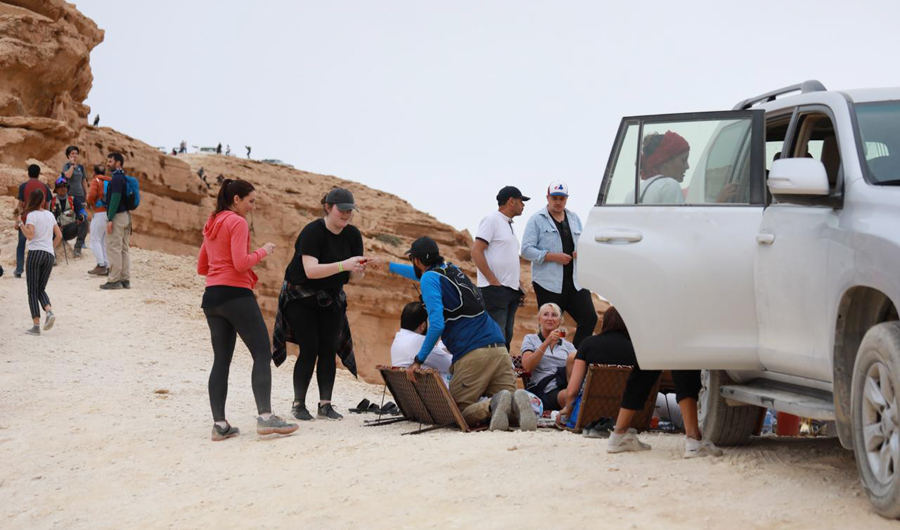
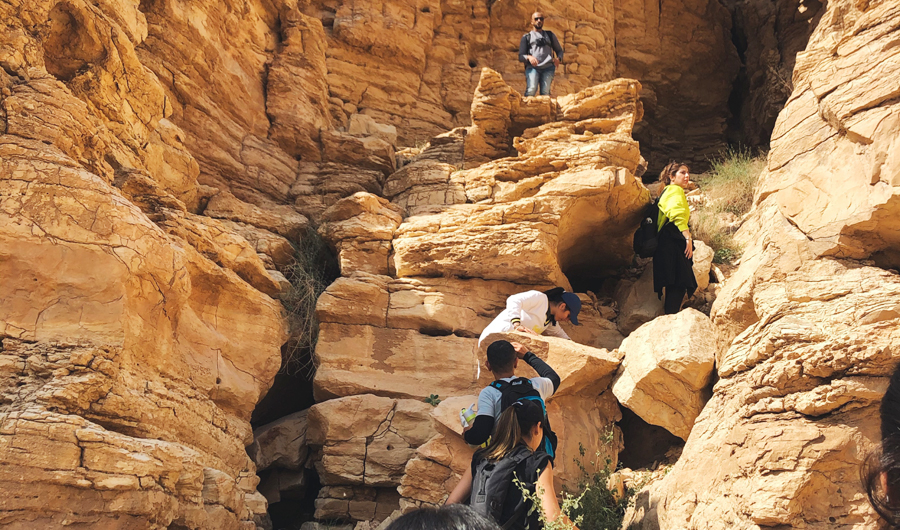
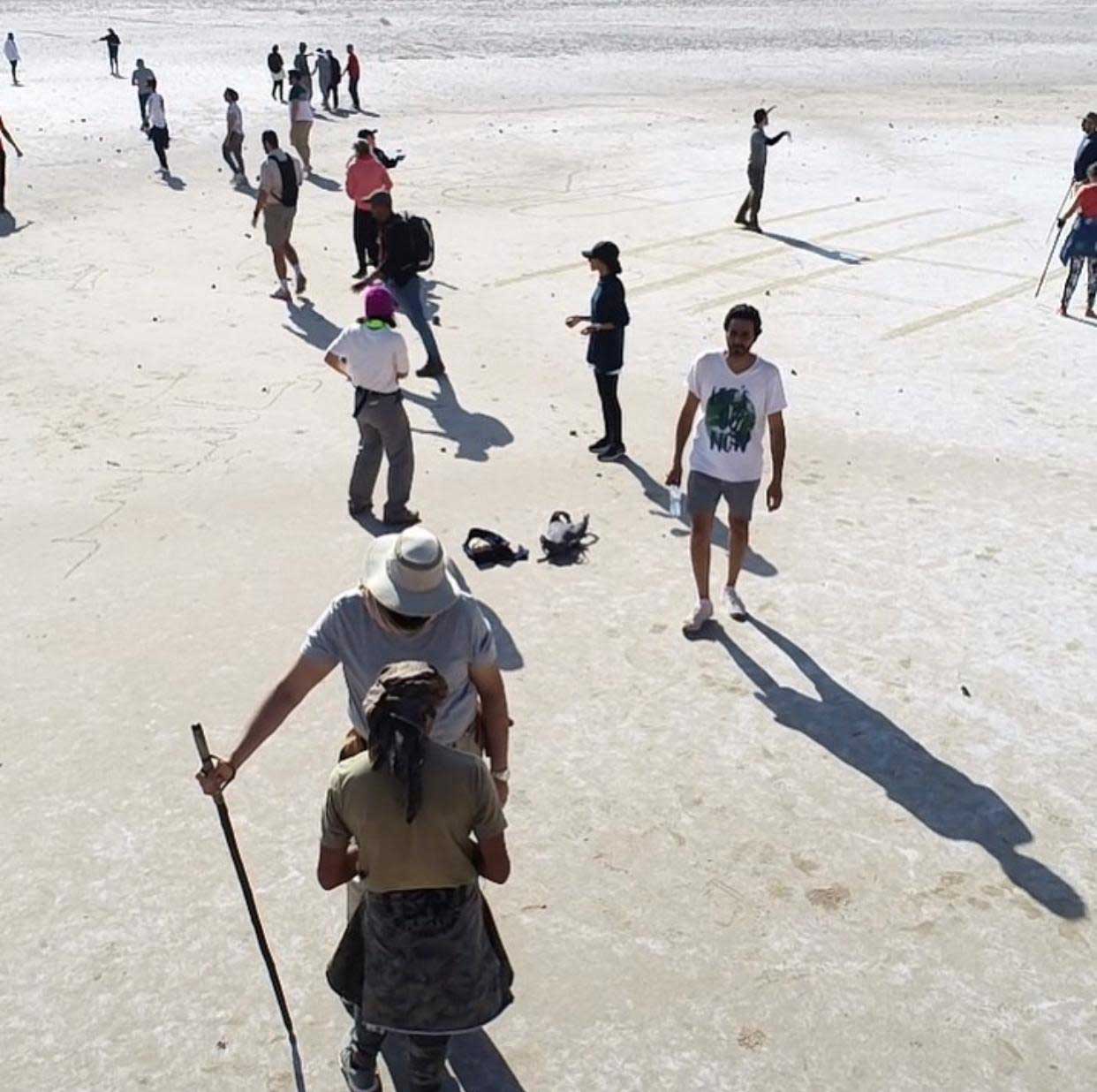
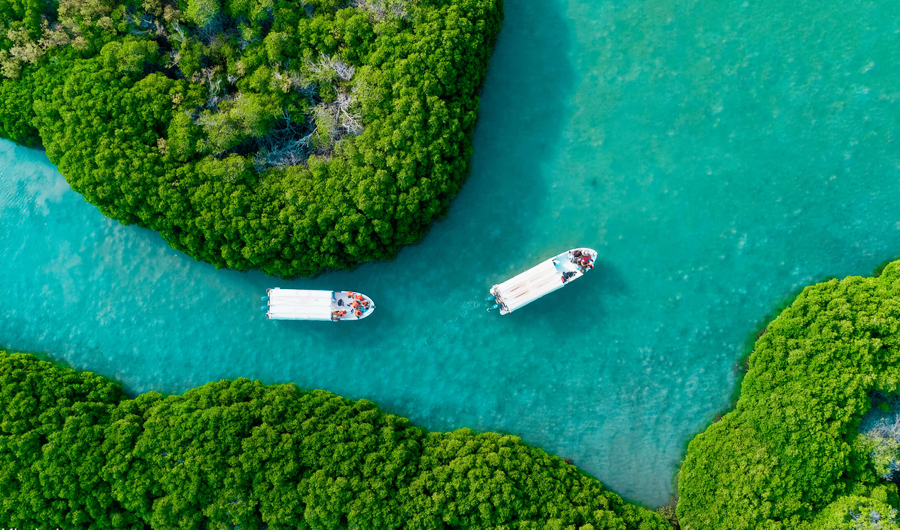
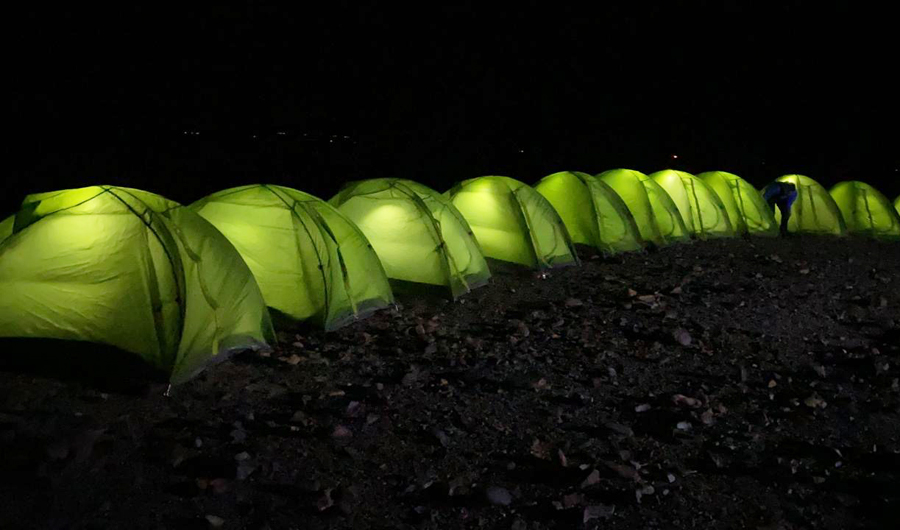
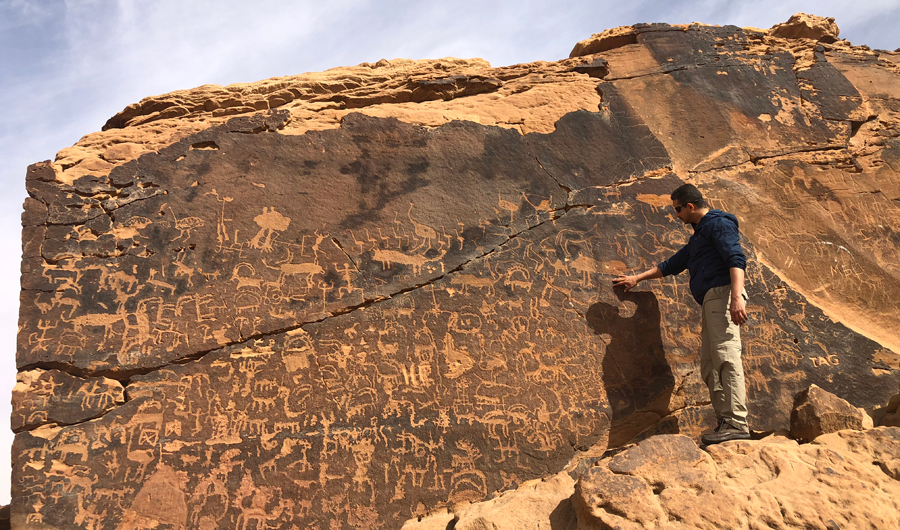
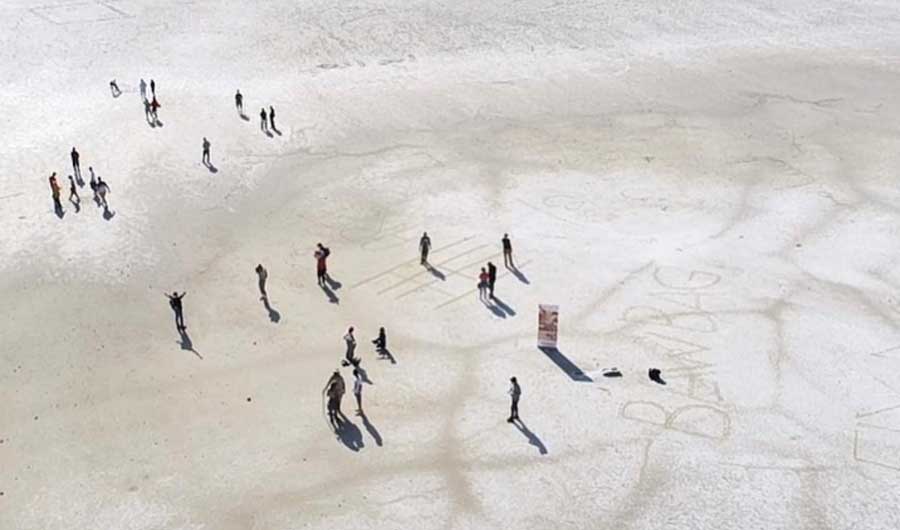
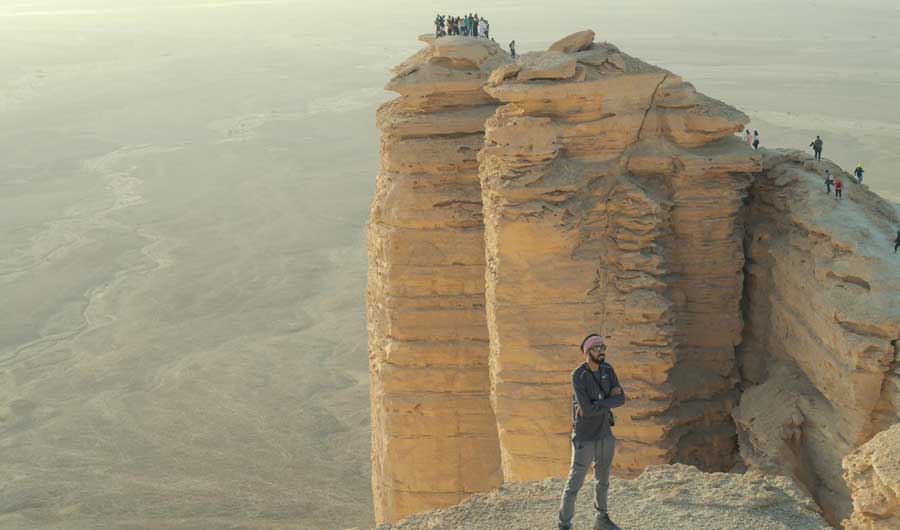
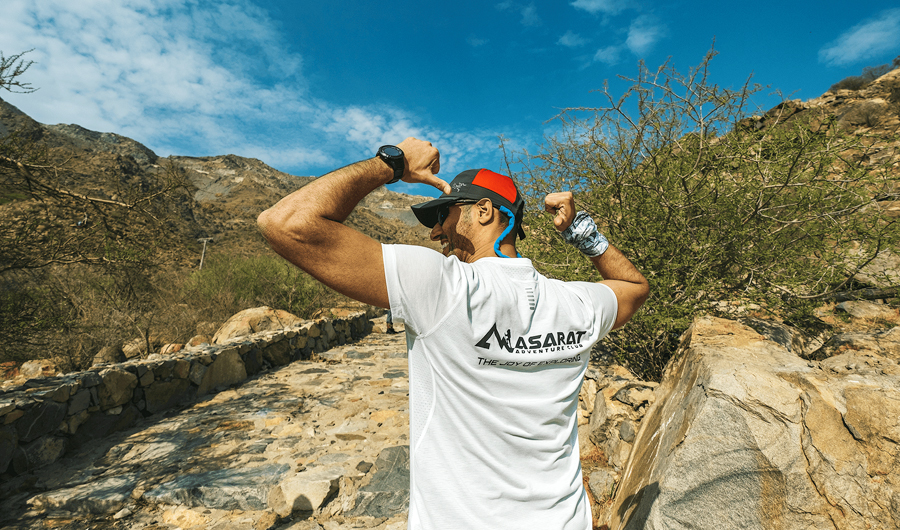
from Saudi Arabia https://ift.tt/2Vv2mua
Saudi Arabia’s Ithra launches international COVID-19 Exhibit open for submissions
RIYADH: The King Abdul Aziz Center for World Culture (Ithra) has launched its international COVID-19 Exhibit, a collection of thoughts, memories and reflections on people’s pandemic experience that can be expressed through art.
Ithra started accepting visitors again since the end of the nationwide coronavirus lockdown, but the effects of the pandemic remain on people’s minds and in their everyday lives.
Launched on June 28, the exhibit’s first phase consists of a virtual show highlighting objects that were particularly significant to members of the public during the pandemic.
Ithra is currently inviting submissions at https://www.ithra.com/en/covid-19-exhibit, and the gallery will go live to the public in July.
Examples of objects being sought by Ithra include newly made works of art or images of objects of particular importance: A pen, a photo of loved ones or relatives, a diary, a musical instrument, a book or a note from a family member.
In 2021, the second phase of the project will include objects selected by the curators from the online submissions, which will be on display at the Ithra building in Dhahran.
Ithra’s head of museums, Laila Faddagh, said that the exhibit was the perfect opportunity for the global community to tell their stories during a difficult and complicated time.
HIGHLIGHTS
• Launched on June 28, the exhibit’s first phase consists of a virtual show highlighting objects that were particularly significant to members of the public during the pandemic.
• Ithra is currently inviting submissions, and the gallery will go live to the public in July.
• Examples of objects being sought by Ithra include newly made works of art or images of objects of particular importance.
• In 2021, the second phase of the project will include objects selected by the curators from the online submissions, which will be on display at the Ithra building in Dhahran.
“While this is an unprecedented time, it is also an unprecedented moment of global solidarity,” she said. “Art is about connecting people through culture — and culture is based on the exchange of ideas and identities — but we connect maybe even more easily through common objects.”
She added that the exhibit was intended to be a forum for creativity and self-expression for everyone. “Ithra is in Saudi Arabia, but, as a leading center for global culture, we want to include people from around the world. In the spirit of welcome, warmth and empathy — especially now during the pandemic — it is an opportunity to connect with everyone, from anywhere.”
The exhibit aims to offer a platform to share objects that are meaningful to people and their stories, provide perspective on the effects of COVID-19 on people and their relationships with objects, connect cultures and create dialogue through international participation, encourage self-expression and creativity, and foster empathy and unity among people around the world.
Ithra, Saudi Aramco’s flagship initiative and the first institute of its kind in the Kingdom, is considered one of the country’s most culturally significant establishments.
During the pandemic, the center’s Ithra Connect initiative produced more than 50 ongoing programs for people nationwide to benefit from during lockdown.
Ithra Connect featured talks by prominent speakers such as British actor Idris Elba and US astrophysicist Neil DeGrasse Tyson, full online access to Ithra’s library, and the “COVID-19 Journal,” an online collective diary where people from around the world shared their thoughts about the pandemic in Arabic and English.
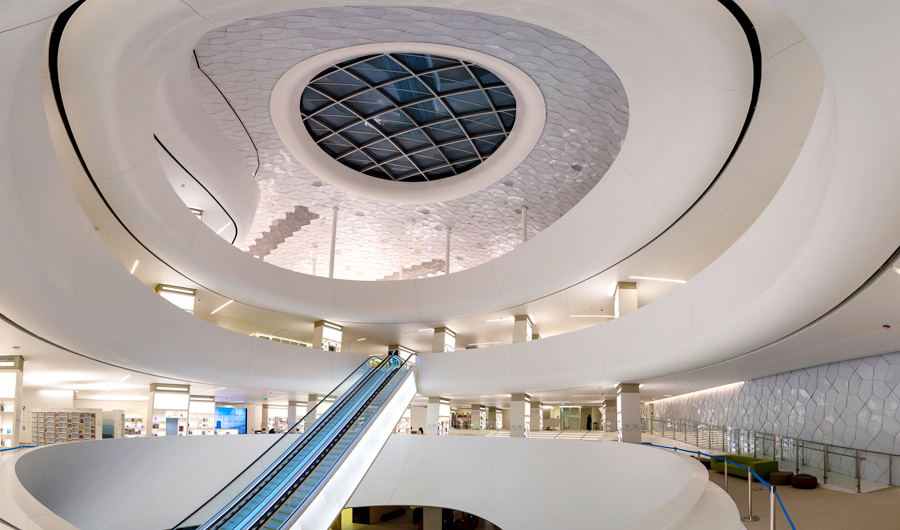
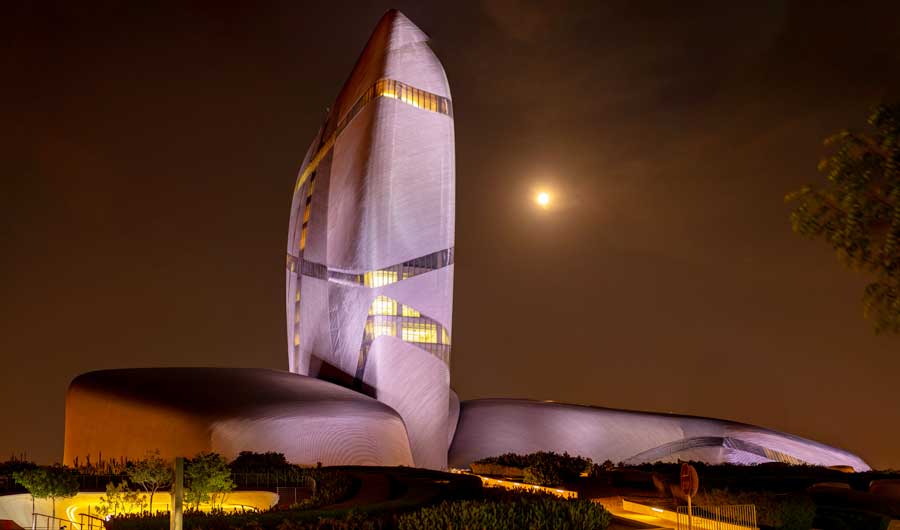
from Saudi Arabia https://ift.tt/2NDdMrC
High Court Grants Divorce On Wife's Refusal To Wear "Sindoor"
from NDTV News - Special https://ift.tt/2ZkrQMe
High Court Grants Divorce On Wife's Refusal To Wear "Sindoor"
from NDTV News - India-news https://ift.tt/2ZkrQMe
17-Year-Old Distributes PPE Kits, Sanitisers To Needy With Pocket Money
from NDTV News - India-news https://ift.tt/38ddt01
My Government Has Nothing To Hide On Donations: Mamata Banerjee
from NDTV News - India-news https://ift.tt/31u9V8g
Coronavirus Live Updates: Centre Announces Guidelines For Unlock2
from NDTV News - India-news https://ift.tt/38aNzdk
US "Golden State Killer" Pleads Guilty To 13 Murders
from NDTV News - World-news https://ift.tt/3gbcSPe
Lunar Eclipse 2020: Know Date, Timings And All Other Details
from NDTV News - World-news https://ift.tt/38ewgZa
Man's Simple Hack To Sort Fruits By Size Garners Praise For Its Ingenuity
from NDTV News - Special https://ift.tt/31qSTb7
Hizbul Commander Killed In J&K. Cops Say Doda District Free Of Terrorists
from NDTV News - India-news https://ift.tt/3ifyBHU
On Amit Shah Alleging "Panic" Over Covid Estimate, Manish Sisodia's Reply
from NDTV News - India-news https://ift.tt/31tdKuu
Nobel Prize Winners, World Leaders Seek "COVID-19 Vaccines For Free"
from NDTV News - World-news https://ift.tt/2Vo1pE4
Hizbul Commander Killed In J&K. Cops Say Doda District Free Of Terrorists
from NDTV News - Special https://ift.tt/3ifyBHU
Rajasthan Man Fined Rs 6.26 Lakh For Inviting Over 50 Guests To Wedding
from NDTV News - Special https://ift.tt/3ggBFlh
"Not Able To Breathe": Man's Message To Father Before He Dies Of COVID-19
from NDTV News - Special https://ift.tt/3gbRI3H
Amid Economic Crisis, PM Pays Tribute To Predecessor Narasimha Rao
from NDTV News - Special https://ift.tt/2NDXrTs
Twinkle Khanna Adds Green To Her House By Recycling Old Bottles
from NDTV News - Special https://ift.tt/3dDja8E
3 Terrorists Killed In Encounter In J&K's Anantnag
from NDTV News - India-news https://ift.tt/2VqjotJ
UN Changes Phrase In 75th Anniversary Draft After India, 5 Others Object
from NDTV News - India-news https://ift.tt/2BQsGrH
Saudi project clears 171,731 mines in Yemen
JEDDAH: The Saudi Project for Landmine Clearance (Masam) in Yemen dismantled 25 anti-personnel mines, 363 anti-tank mines, 24 explosive devices and 773 unexploded ordnance — totaling 1,185 mines — during the fourth week of June.
The project is implemented by Saudi cadres and international experts to remove mines planted by Houthi militias in Yemeni regions, especially Marib, Aden, Sanaa and Taiz.
A total of 171,731 mines have been extracted since the beginning of the project. More than 1.1 million mines have been planted by Iran-backed Houthi militias in Yemen during the conflict, claiming hundreds of civilian lives.
Masam aims to dismantle mines in Yemen to protect civilians and ensure that urgent humanitarian supplies are delivered safely. Houthis are developing anti-vehicle mines and turning them into antipersonnel explosives to intimidate and terrorize civilians. The Masam project is one of several initiatives undertaken by the Kingdom, on the directive of King Salman, to help ease the suffering of Yemeni people.
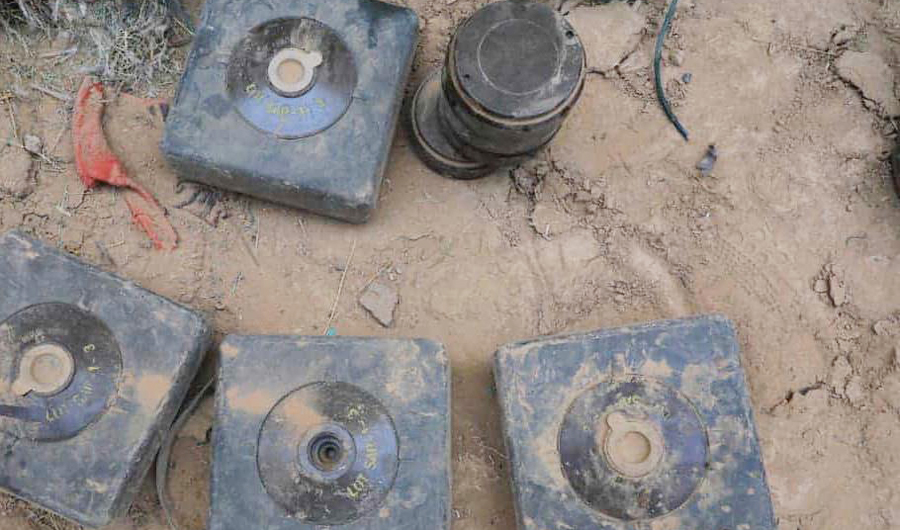
from Saudi Arabia https://ift.tt/3eJ1cD0
Jeddah’s King Abdulaziz International Airport closes south terminal after 40-year saga
JEDDAH: King Abdulaziz International Airport’s southern terminal — a gateway to the Kingdom for almost 40 years — has closed its doors for the final time, bringing an end to an unrivalled chapter in Saudi aviation history.
With a design modeled on Dulles International Airport in Washington, D.C, the iconic tent-like structure has seen millions of travelers pass through its high-ceilinged halls since its historic opening in 1981.
Now the southern terminal and its services will be moved to the airport’s latest global destination, T1, just a few miles away.
While the terminal doors will close, memories of the airport and its place in the Kingdom’s history remain.
Saad Al-Shehri, former vice president of safety and security at Saudi Arabian Airlines, said that the airport’s inauguration in April 1981 was a moment of national pride and a “cultural shift in aviation and logistics services in the Kingdom.”
King Abdulaziz International Airport created a revolution in aviation in the Middle East and, more specifically, Saudi Airlines.
Ali Malat, Former Saudi Arabian Airlines assistant general manager
King Abdulaziz International Airport was characterized by its large size and the beauty of its design, he said.
“The airport was one of the most beautiful ever designed. It was distinguished by its smooth flow of movement,” said Al-Shehri.
“The departure lounges were separate from arrivals, and the Saudi Airlines flight halls were separate from those dedicated for foreign airlines. Modern and comfortable jet bridges were used for passengers to board and disembark. These were used in only three airports around the world to my knowledge — King Abdulaziz Airport, Dulles International Airport in Washington, DC, and Montreal-Pierre Elliott Trudeau International Airport.”

Al-Shehri added: “The airport was also characterized by its modern buildings, complementing operational, technical and support services, whether related to the General Authority of Civil Aviation (GACA) and airport management or what is related to Saudi Airlines.”
He said that for the first time in the Kingdom, “modern and spacious buildings were allocated to airport management and a building for Saudi Airlines’ operations, which included pilots’ management, air service management, royal flight management and more.”
Former pilot Capt. Ali Badeeb was on duty when the airport opened almost 40 years ago.
“It was one of the most beautiful moments of my life,” he recalled.
“I was full of joy when I moved to the new airport, which was equipped with the latest technology relating to operations, maintenance, passenger service and air navigation systems at the time.”
The airport’s inauguration in April 1981 was a moment of national pride and a cultural shift in aviation and logistics services in Saudi Arabia.
Saad Al-Shehri, Former vice president of safety and security at Saudi Arabian Airlines
Badeeb said that he has “mixed feelings of sadness and joy” as he bids farewell to the terminal.
“We raised the capabilities of loyal men who dedicated their lives to serve their country, and this building witnessed a great leap forward in the aviation sector in the Middle East,” he said.
Former Saudi Arabian Airlines assistant general manager Ali Malat said the airport’s opening “inspired all Saudis” because it was a sign of expansion and development, followed by King Khalid Airport in Riyadh and then King Fahd Airport in Dammam.

Malat said that airports at that time “were small and in the heart of the cities,” and described King Abdulaziz International Airport as a “real breakthrough.”
“We were eagerly waiting for the airport building. It was completed very quickly, at a time when Jeddah had a narrow geographic area and the city was not as big as it is today.”
Malat said that King Abdulaziz International Airport created a revolution in aviation in the Middle East and, more specifically, Saudi Arabian Airlines.
“By virtue of my work in the field of aircraft maintenance, I can tell you that aircraft maintenance and engineering were operating from within the airport and had the spaces that helped them perform their tasks effectively and efficiently.”
He said the “big leap forward” in technical capabilities offered new horizons for creativity, innovation and development, especially in aircraft maintenance.
“Countries in the region with airports that today offer a role model in terms of efficiency, beauty and quality of service consider the old King Abdulaziz International Airport as a landmark that cannot be matched,” he said.
“These countries used to have only small local airports that were not to be compared to the old airport, which was equipped with the latest technology of its time.”
Capt. Essam Yeslam said that the history of aviation in Saudi Arabia has been linked from the outset to the training of cadres working in the sector’s facilities and departments for both civil and military use.
“When we were young, we used to look with admiration and fascination at everything new in this field, and we are grateful for the special care that our country and our leadership are paying to this sector, giving special interest to all developments and innovations worldwide,” he said.
Capt. Yeslam noted that urban expansion throughout the Kingdom during the 1970s put a burden on the old Jeddah airport, located in the center of the city, surrounded by buildings from all sides.
“King Abdulaziz International Airport was designed along the model of Dulles International Airport in Washington, D.C., as resources were dedicated to design a new and modern airport with up-to-date characteristics approved by King Faisal.”

He said: “Fortunately, all sections of King Abdulaziz International Airport became fully operational, including the northern and southern facilities, pilgrims’ halls with an annual capacity of nearly 8 million passengers, modern navigational equipment, three runways that were at the time a great leap forward in the process of the development and modernization of the Kingdom, accompanied by a major expansion in the fleet of Saudia Airlines, and an increase in its international and domestic flights, international and private airlines companies, and in the number of pilgrims.”
Yeslam said that 30 million passengers passed through the airport in its first expansion phase and there were plans to host 80 million passengers by the third stage — one of the most notable developments he has seen since beginning service with Saudia in 1977.
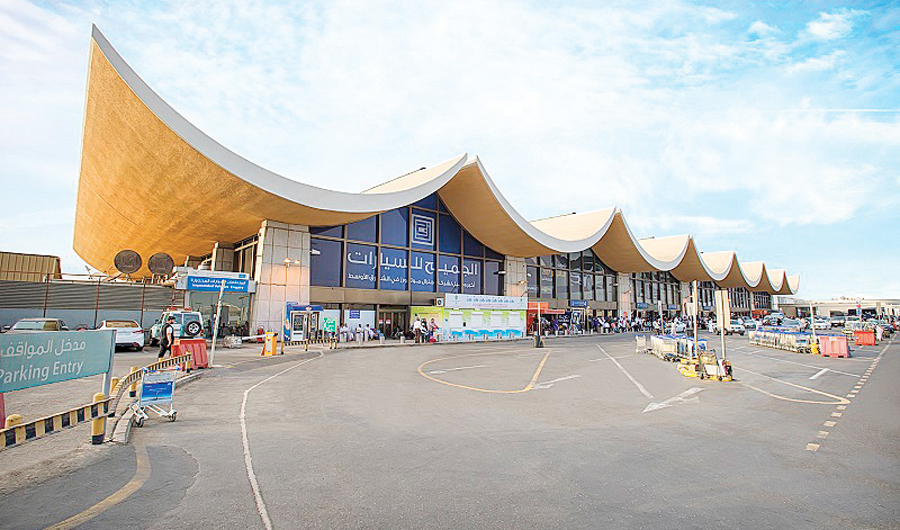



from Saudi Arabia https://ift.tt/2NDYYZL




